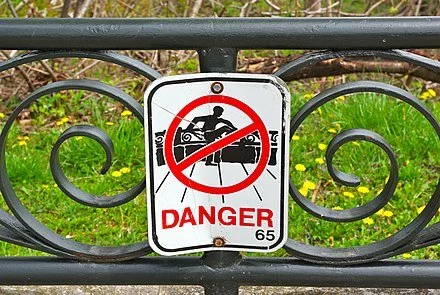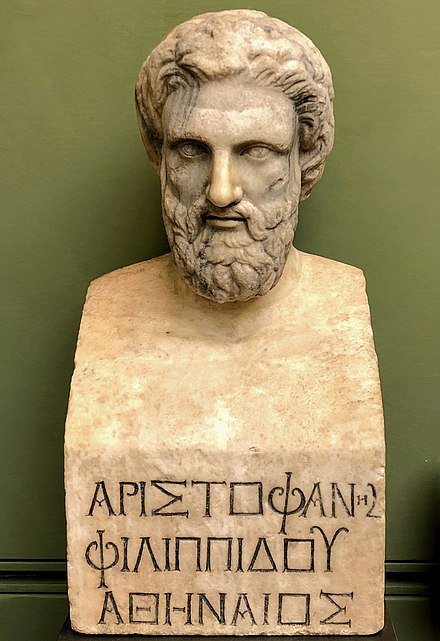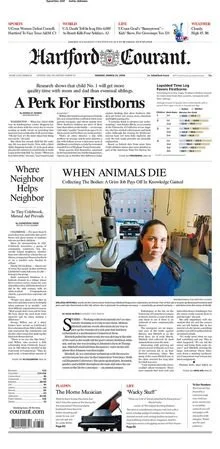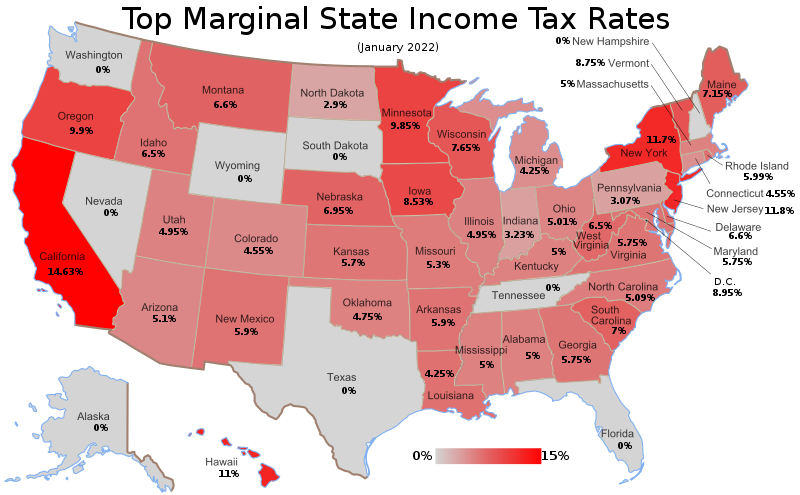
Don Pesci: In search of Anti-Semitism in Conn. and elsewhere
William F. Buckley Jr. in 1985
VERNON, Conn.
National Review, founded by the late William F. Buckley Jr. (1925-2008) in 1955, has been a stumbling block to neo-progressive Democrats for nearly seven decades. The mission of the magazine, Buckley announced at its founding, was to “stand athwart history, yelling Stop, at a time when no one is inclined to do so, or to have much patience with those who so urge it.”
Jack Fowler, now running for city clerk in Milford, Conn., has been associated with the magazine for more than three decades and served for a time as its publisher.
Fowler, along with Buckley and other non-far-right conservatives at National Review, cannot reasonably be accused of either anti-Semitism or unflinching support of former President Donald Trump.
Long before Trump threw his hat in the presidential-campaign ring, Buckley characterized Trump as a “vulgarian,” and National Review later took some kicks in the stomach for having devoted a whole issue of the magazine to a political polemic titled “Never Trump.”
In 1992, Buckley published what some consider the best view of modern anti-Semitism, In Search of Anti-Semitism.
John O’Sullivan, then publisher of National Review, characterized the book this way: “It is not a history of anti-Semitism, nor a social-psychological definition of anti-Semitism, not a survey of anti-Semitism in the world today.” The book is rather “an examination of how anti-Semitism is treated when it appears, or is alleged to appear, in the limited but influential milieu in which he [Buckley] happens to live: opinion magazines, op-ed pages, syndicated columns, television talk shows.”
The book may be considered especially relevant considering the current pro-Hamas protests, some of them patently anti-Semitic, among leftist outposts in ivy-league fever swamps, opinion magazines, op-ed pages, syndicated columns and television talk shows.
“The election for Milford city clerk,” a Hartford paper reports, “is traditionally a low-key, overlooked local contest for a job that includes approving items like marriage and dog licenses. But the campaign this year has exploded into charges and countercharges as Democrats are blasting Republican Jack Fowler for a series of controversial posts on a variety of subjects dating back to 2012.”
Opposition researchers likely associated with Connecticut’s mud-throwing Democrat Party have unearthed “a series of controversial tweets by Fowler that date back more than a decade and involve sharply criticizing another Milford Republican and making references to Jews.”
The tweet in question “written by Fowler, which came to light recently when retweeted to nearly 44,000 followers by Connecticut Democrats, states “Jewrack Jewbama. Jew Biden. Nancy Jewlosi. Hebrewllary Clinton. Yeah, you’re right now that I think about it.”
Fowler, the paper observes, “admits writing the posts but says they were either sarcastic, done in jest or responding to news events of the day that cannot be understood properly without knowing the original tweets that caused the response… Fowler says he was responding to another post, which has since been deleted, that had criticized National Review, which is a staunch defender of Israel. In addition, Fowler released a series of pro-Israel tweets that he wrote, along with three articles that he authored for the magazine on anti-Semitism.”
Defending himself from a charge of anti-Semitism, Fowler answered, “There is no question where I stand thoroughly, very publicly, repeatedly, voluminously over the years [on Israel]. To be accused to being anti-Semitic is reprehensible, especially by people who know it’s not true. … People who know me in Milford know this is B.S. This is the age we live in. It’s not to win an election. It’s to destroy the reputation of somebody.”
Given the prevailing circumstances in the hot war between Israel and Hamas, every rhetorician on planet earth would acknowledge that, if you are defending yourself against an unwarranted charge of anti-Semitism, you are losing the argument. Quite like a poisonous false charge of racism, the mere making of the charge itself is certain proof of culpability.
Fowler’s statement, even if made in jest, said state Democratic Party Chairperson Nancy DiNardo, is “inappropriate.” But it is seemingly appropriate to tat political opponents with anti-Semitism. Such ideological tattoos do not easily wear away, even if they are demonstrably false.
DiNardo, applying her pitch-brush more broadly, continued “I think it points to how bad the Republican Party is getting. They’re going to be extremists at every single level. It’s just not what the Connecticut voters stand for… He was the publisher of an ultraconservative, far-right magazine. Of all the candidates that the Republicans could have picked in Milford, and they picked him? That’s shocking to me. He’s not a good candidate to be running for this position.”
The easily shocked DiNardo very likely has never leafed through the non-far-right, non-ultraconservative National Review. She certainly has never read Buckley’s In Search of Anti-Semitism.
We have here reached a point –of no return? – in which ideologically polluted charges need not be proven before they are unjustly launched against political foes simply to win elections.
When Alice in Lewis Carroll’s Through the Looking Glass rebukes Humpty Dumpty for having used the same word to mean opposite things, Humpty Dumpty replies imperiously that the word he is using means exactly what he “chooses it to mean, neither more nor less. The only question is – who rules.”
In Connecticut, Democrats rule.
Don Pesci is a Vernon-based columnist.
Don Pesci: In Connecticut (!) at a glorious center of conservatism on the Glorious Fourth
“Writing the Declaration of Independence, 1776,” a 1900 painting by Jean Leon Gerome Ferris depicting Benjamin Franklin, John Adams and Thomas Jefferson working on the document.
SOMERS, Conn.
The Fourth of July this year, as everyone in Connecticut who has tolerated the weather the past few days well knows, was wet. The weather, along with fidgety concerns about the effect of fireworks displays on an apparently violated environment, have thrown cold water on John Adams’s view of a proper celebration of independence.
“The Second Day of July 1776,” Adams wrote to his wife, Abigail, on the occasion of the signing of the Declaration of Independence, “will be the most memorable Epocha, in the History of America. I am apt to believe that it will be celebrated, by succeeding Generations, as the great anniversary Festival [of Independence] …It ought to be solemnized with Pomp and Parade, with Shews, Games, Sports, Guns, Bells, Bonfires and Illuminations from one End of this Continent to the other from this Time forward forever more.”
The official celebration of Independence on July 4, pedants will note, is off by two days.
The weather did not matter on this July 4, as the Blake Center for Faith and Freedom, an offshoot of Hillsdale College, in the city of the same name in Michigan, celebrated the real founding in 1776 of the United States of America. All the fireworks were inside the center in Somers.
My wife, Andree, and I were in attendance and found the building itself, a brick-by-brick recreation of Thomas Jefferson’s Monticello, astonishing, along with the company in attendance, a crowd who draw comfort and illumination from the Founding Fathers of the country; the Blake Center’s executive director, Labin Duke, and the two speakers – Hillsdale Professors Thomas West and David Azerrad, – who shed illumination, if not pomp, on the subjects they chose to present.
The first speaker, West, the author of The Political Theory of the American Founding; Natural Rights, Public Policy, and the Moral Conditions of Freedom, limited his remarks to a discussion of the foundational understanding of modern views concerning the odd shape of our post-liberal foreign and domestic policy. What would the Founders, for instance, have thought of an interventionist foreign policy – that is, an activist foreign policy in which one nation imposes its political views upon another?
Most of them would have felt, as John Adams did, that “America is the friend of liberty everywhere, but the custodian only of our own.” And then, too, there is Washington, the weld of the American Revolution, warning his fellows to avoid “entangling alliances.”
The second speaker, David Azerrad, ventured into our current Marxist-inflected mare’s nest – are we all racists?
The short answer, although there continues to exist in our relatively racist-free society some real racists who continue by their morally offensive and unorthodox behavior to prove the rule that the United States has left racism behind us. Such obnoxious idiots might well profit from a Hillsdale education and a careful reading of the Declaration of Independence, written chiefly by Thomas Jefferson -- “We hold these truths to be self-evident, that all men are created equal, that they are endowed by their Creator with certain unalienable Rights, that among these are Life, Liberty and the pursuit of Happiness” -- himself a slave owner.
That declaratory bit concerning “natural rights” having been authored by the Christian God who endowed mankind with “certain unalienable Rights,” among which are “Life, Liberty and the pursuit of Happiness…” is the wooden stake thrust into the heart of a vampire-like slavery, done to death in a Union-shattering Civil War watered with the blood of patriots at Shiloh and Gettysburg.
The founder of the Friendly’s restaurant chain, S. Prestley Blake, and his wife, Helen, at first sold the property to one buyer, later repurchased it and then more or less gifted it to Hillsdale, in 2019.
In four short years, The Blake Center for Faith and Freedom has become, its patrons realize, an inestimable pearl of wisdom located providentially on the border of Connecticut and Massachusetts.
We should count ourselves lucky – though the center itself regards such “luck” as providential – to have in our presence such a pearl buried deep in an ocean of muddy neo-progressive nonsense. And all of us know for a certainty that no one may reach the pearl without a deep personal dive into history, the U.S. Constitution, the deposit of Christian faith and morals, and the luminous writings of honored precursors of the American experiment in ordered liberty.
Don Pesci is a Vernon, Conn.-based columnist.
#Blake Center for Faith and Freedom
John Sideli and ‘the strange liberty of creation’
John Sideli with some of his creations
VERNON, Conn.
The ancient Greeks have a saying: “To meet a friend again after a long absence is a god.”
My wife, Andrée, and I have known John Sideli for more than 60 years. After a long absence, we met again in Bristol, R.I., where, close by in Warren, Andrée and I enjoyed a brief vacation. As the word “vacation” suggests, times spent in this way together are best savored without all the modern inconveniences: no computers, no phones, and, in my case, no newspapers -- seven days, a full week, of serendipity, and a welcomed respite from the drudgery of column writing.
Andrée has always said that political writing is a bit like scrawling a message with your finger on a strand of tide-hardened beach before the tide rushes in to erase it.
On day three, she smiled mischievously and said, “I’ve arranged a surprise for you. I’m sure you will be pleased. I can’t tell you what the surprise is, because then it will be no surprise.” There were no flaws in this logical construction.
The surprise was John Sideli, changed somewhat from the Sideli I knew six decades earlier and now living in Bristol. But the point of the Greek saying is that memories, sleeping in the brain for years, are always youthful. They stir and come to life when, after a long absence, we meet an old friend again.
Sideli’s first love was antiques, and he had a jeweler’s eye for beauty, always an enticing mistress. He was a purveyor of cluttered antique shops, junk yards and astonishing roadside finds. The eye that pierces through facades and strikes at the bone and muscle of things, destructs and constructs anew. And if it is an artist’s eye, the new construction carries within it the essence of things. All art is a reconstruction of buried narratives brought to life again by the work of the artist.
There is in Sideli’s works a living drama, the result of separate pieces of time cunningly brought together in a frame. Quite like characters in a play, these essences, alive and jostling each other, produce in a viewer pity, sorrow, laughter, tears, all the ragged radiations of a drama. They tell, they speak to the viewer. And what the viewer carries away from the encounters depends, ultimately, on what he or she brings to them.
In 1968, Sideli found himself caretaking for two years at the Roxbury, Conn., estate of the very much in demand and famous sculptor Alexander Calder, noted for his stabiles and mobiles. The experience was transformative. In some of his pieces, Calder had been collecting and putting together – deliberatively and artfully, not randomly – certain found objects that had appealed to his aesthetic sensibilities. Calder at play, it turned out, had a very well developed sense of humor present in many of his pieces. During a visit to the estate, I remember in particular a playful tabletop carousel, art and humor shaking hands and greeting each other as old friends.,
At the same time, Sideli had been collecting various bits and pieces that had appealed to him. “I realized,” Sideli noted in a Hirschi & Adler showing in New York in 2013, “why I had been collecting these fragments, bits and oddities. I was amazed by the way they would take on a new meaning when juxtaposed in different contexts. They would acquire a kind of narrative aspect and even evoke a sacred mood in a very short time. I became a champion of the art of everyday objects.”
We were seated in Sideli’s modest living room, surrounded and captivated by his enticing “mixed media constructions.” That verbal construction belongs to Riviére, at Robert Young Antiques of Battersea Bridge Road, London, an antique dealer that featured Sideli some years ago.
He was showing me some photos, some of which he had sold at mouthwatering prices to all and sundry -- millionaires, workmen, professionals of every stripe, including butchers, bakers and, for all I know, candlestick makers.
Two people had come into his then-shop in Wiscasset, Maine, looked around a bit, and the female almost immediately pointed to a humorous rendition and said, “That’s it. That’s the one I want.”
Such decisions are easily made because it is impossible not to have a conversation with the Sideli piece you love, and many purchases are the result of love at first sight. Recently, Sideli asked his daughter – trying his best to be uncomplicated -- which of the pieces she would like after he had gone the way of all flesh.
Answer: “All of them.”
“The color in this one,’’ I said, “is farm tractor red.”
“That is because the metal plate [featured in the piece] came from a tractor, or part of a roof, painted tractor red, that housed the tractor in an out-of-the way place in Costa Rica.”
Naturally, a narrative attached to the art work.
The farmer from whom Sideli had procured the plate was irascible, with a short temper, not unusual in intensely practical farmers everywhere. Farmers want to be about their business. Intrusions not business related tend to be costly. The man was cocking a poisonous eye at Sideli, who had, very politely, asked the farmer whether he might be willing to carve out a piece of his farm equipment for an art project. The price was right, the thing was done, and I was now staring at the final product.
Most of Sideliworks are tinted with humor, as are most of the conversations I’ve had with Sideli. That is because humor is always the result of a joyful asymmetry, an incongruous mixing of tragedy and comedy, a disproportion that strikes the fancy immediately, the way a hammer strikes the gong.
“That’s the one I want.”
Years after Sideli had returned to America from Costa Rica, where he had been living for a few joyous years, he returned to the farm, surprised to see the old farmer was still among the living.
“I doubt you remember me,” Sideli said to the farmer.
Some people, and some circumstances, are unforgettable.
“Oh, I remember you alright.”
Strolling the streets of Costa Rica, Sideli was struck by the various colors of metal street plates, all of them softened by years of sun and rough weather but, like distant stars, still shining brightly.
“I went in search of some cast off plates and found a shop that replaced them.”
He said to the owner of the shop, “I’d like to buy those used plates.”
Big smile! Here was an American with money.
“I have some new plates right over here.”
“No, no. I don’t want the new plates. I want these old plates, no others. How much?”
The two arrived at a price, and Sideli carried off the used plates as if they had been venerable religious objects.
French author and philosopher Albert Camus lived his life – much too brief, as it turned out -- with his eyes wide open. We tend to forget that all art is a transcendent product of time and space. “To create today,” Camus tells us, “is to create dangerously… The question, for all those who cannot live without art and what it signifies, is merely to find out how, among the police forces of so many ideologies… the strange liberty of creation is possible.”
“Protect the Innocent’’
The construction of “Protect the Innocent” began with a news account of a horrific rape in South America, Shortly after the account appeared, Sideli noticed two white, truncated mannequins lying in mud, discarded on the roadside. He washed them carefully and brought them home. The viewer will notice the saw-toothed metal rim of the frame. The mannequins, draped in tassels, are immaculate but vulnerable and white as a communion wafer.
In an artist’s note Sideli writes, “I assemble and arrange objects in the same way that a poet chooses words. I try to carefully combine them in a way that allows them to transcend their original form or purpose and evoke a feeling or tell a story. And as with poetry, there is a certain rightness to a particular combination or arrangement that will express with directness and simplicity what I want to say.
“I believe that there is spirit in matter, which, if tapped, can have a powerful resonance when objects are carefully tuned, coaxed, combined and juxtaposed.”
The sensuous penetration of all art depends ultimately upon the presence of the artist in the work and the attention viewers or auditors bring to it.
Those lucky enough to own a Sideli art work will find they need never be alone. Sideliworks, like the remembered poem, stay with you, a faithful companion, when everyone else has left the room.
Don Pesci is a Vernon-based columnist.
#John Sideli #Don Pesci
Don Pesci: Conn.’s neo-progressives move to take down fiscal guard rails
VERNON, Conn.
A Hearst editorial has been answered by Connecticut Gov. Ned Lamont.
“The Hearst Connecticut editorial, ‘Caution on the budget can go too far,” the governor wrote, “suggests that our balanced budgets and budget surpluses are shortchanging spending on important needs. Respectfully, I disagree.
“On the contrary, the fiscal guard rails established by the legislature in 2017, and recently reconfirmed on a bipartisan basis for another five to 10 years, have served as the foundation for our state’s fiscal turnaround, stability and economic growth. Higher growth is more than GDP — it means more families moving into the state, more new businesses, more job opportunities and more tax revenue (not more taxes, but more taxpayers). All of which have allowed us to increase investments in core services while proposing the biggest middle-class tax cut in our history.”
Neo-progressives in the General Assembly appear to be moving towards dismantling by degrees the spending guard rails supported by Lamont and a majority of Republicans in the General Assembly, now that Democrats have achieved a near veto-proof majority in the state legislature. Connecticut’s taxpayers and reporters may recall that the guard rails – essentially limits on spending – were installed after Republicans had achieved numerical parity in the state House. That parity, and with it an opportunity to press responsible budgetary restraints on profligate spenders, has long since gone by the wayside. The neo-progressive mutineers who invariably favor unlimited spending are now in charge of the General Assembly.
Why don’t we just spend the state’s mouthwatering surplus on necessary expenditures, the Hearst editorial asks?
“The surplus,” Lamont answers, “is invaluable in a state with some of the biggest debt per capita in the country, with the costs of carrying that debt eating into the resources we need to maintain and expand key services. But what the editorial fails to articulate is the volatility associated with the surplus. What is ‘here today’ can just as easily be ‘gone tomorrow,’ as they say.”
The governor is a bit too polite to put the matter more boldly. In fact, surpluses have in the past disappeared in the blink of an eye because they have been used by vote thirsty Democrats in the General Assembly to permanently increase long term spending. That is to say: Past surpluses have been folded into future increases in spending in budgets affirmed by neo-progressive Democrats who believe that if spending is a good thing, more spending is always better. It is this ruinous idea that has swollen all past budgets. The last annual pre-Lowell Weicker income tax budget was $8.5 billion. The current biannual budget is $51 billion, a more than fourfold increase in spending.
“The problem with socialism” – i.e., unrestrained, autocratic spending – Margaret Thatcher reminded us, “is that, sooner or later, you run out of other people’s money.” There are some indications that voters in Connecticut are running out of patience with heedless neo-progressive legislators who cavalierly run out of other people’s money.
The single line in Lamont’s challenging answer to the initial Hearst editorial that drives neo-progressives batty is this one: ‘Funding future programs via a current surplus is irresponsible” and, Lamont might have added, costly in the long run to a state that hopes to liquidate part of its gargantuan debt of some $68 billion by poaching businesses from more predatory Eastern Seaboard states and increasing business productivity in Connecticut.
By trimming Lamont’s tax cuts and agitating for increases in spending, neo-progressives in the General Assembly are sending a message to the governor that the dominant left in the state has no intention of seriously cutting net-spending. The easiest way to corner a vote in Connecticut is to use surplus money to buy votes, and the purchasing of votes cannot be done in the absence of budget surpluses, either real or imaginary.
“Getting and spending, we know, are conjoined twins. Years after [former Governor Lowell] Weicker had left politics,” this writer noted four years ago, “he appeared with a panel of businessmen at the Hartford Club. Asked to reflect on Connecticut’s then burgeoning debt, Weicker groaned, “Where did it all go?” But he knew where it went. Politicians spent it and, by raising taxes, relieved themselves of cutting governmental costs, always a painful ordeal for those who have pledged their political troth to state employee unions, Connecticut’s fourth branch of government.”
The neo-progressive wing of Connecticut’s Democrat Party simply waited Weicker out. It is infinitely patient.
Don Pesci is Vernon-based columnist.
The Tower on Fox Hill, in Vernon
Don Pesci: Of manners, moral duties and the death penalty in Conn.
Execution room, Connecticut State Prison, Wethersfield
– Connecticut Historical Society and Connecticut History Online
VERNON, Conn.
“The problem with bad manners,” the late conservative Republican writer (and Connecticut resident) William F. Buckley Jr. told us “is that they sometimes lead to murder.”
No scholar in Connecticut has yet produced a study showing a correlation between bad manners and murderers once on Connecticut’s death row, abolished several years back by a well-mannered state Supreme Court. Scholars and prison records and even the personal testaments of prisoners have led us to believe that prisons, as a general rule, are schools of bad behavior.
One of the prisoners set free from death row by Connecticut’s overly compassionate state Supreme Court in 2015 was Frankie “The Razor” Resto, a candidate for a death penalty and an ill-mannered character.
The abolition of the death penalty in Connecticut was a three-step process. In 2012, Connecticut’s House of Representatives voted to repeal capital punishment for future cases, choosing to leave past death sentences in place. The Connecticut Senate had already voted for the bill, later found unconstitutional by the same state Supreme Court that had found the death penalty unconstitutional, and on April 25 it was signed into law by then Gov. Dannel Malloy. In the same year, the state Supreme Court, unsurprisingly, ruled that applying the death penalty only for past cases was unconstitutional, and capital punishment in Connecticut was promptly shown the door.
Resto, who burned his mattress while in prison and dealt in drugs, was called “The Razor” because he was known for shaking down drug dealers on the street with a straight edge razor. He was paroled early owing to a newly created program, separate from the usual parole process, devised by a former co-chair of the state House Judiciary Committee, Mike Lawlor, then a prison czar appointed to the newly created position by former Gov. Dannel Malloy, that awarded “get out of prison early credits” to deserving prisoners.
Immediately following his early release from prison, Resto easily acquired a gun, despite Connecticut’s stringent gun laws, and held up an Easymart store in Meriden, Conn.
When the co-owner of the store handed over the cash, Resto shot and killed him, without so much as a “thank you very much.” This is not the kind of well-mannered behavior one expects of Errol Flynn’s Robin Hood.
When I attended high school way back in the early ‘60’s, honorifics were very much in vogue. We addressed teachers as Mr., Mrs. and Miss. The fear that, caught out in some deplorable indiscretion, intelligence might be shared with our parents made us toe a straight line, at least in school. In the close-knit world of the neighborhood, eyes were everywhere and police far less necessary than they are in this post-modern period. Boys loved, respected and feared their fathers.
When my father asked me at the supper table, “How did your day go?” he knew beforehand exactly how my day had gone, particularly if it was spotted with delinquencies I had overlooked. No one in the family ever thought of lying to him, whether the lies were black or white lies.
“You know,” he told me once – and only once – “if you lie, your word will never be trustworthy.”
All manners are related to moral obligations, and all moral obligations, Immanuel Kant tells us, are related to duties – not convenient private moral codes. This whole system of Kantian morality – enforced by fathers and mothers in intact family structures and aunts and uncles and sometimes nosey and mischievous neighbors -- has collapsed in the post-modern period. Morality is now related to power and force.
My wife, Andrée, legally blind since birth, was among the first visually impaired persons to teach in public schools in Connecticut. Getting there was a fierce battle. Today, more than four decades after she had left teaching, she still receives notes from some of her grateful students, all bearing the same moral stamp – “You were the toughest teacher I ever had, but thanks to you...” and here followed a series of personal accomplishments.
Andrée’s most memorable teacher was an accomplished Jesuit priest who taught a course in aesthetics at Fairfield University, where she had gone to acquire her master’s degree in American Studies, in order to convince then Gov. John Dempsey that, having graduated at the top of her college class, and having taught with distinction for three years in two separate Catholic schools, and having appeared with special notice in Who’s Who in American Colleges and Universities, and having now acquired her master’s, with honors, in a new discipline, she was perfectly capable of teaching sighted students in public schools. Letters had gone back and forth for about two years, the governor claiming he could not overrule college administrators. But finally after much clarifying correspondence a letter appeared from Dempsey that said, “OK, Andrée, you win,” and she was certified to teach in public schools.
The priest was big man in a flowing robe, in appearance somewhat like the British writer G.K. Chesterton. We became friendly and one evening over our meager supper he said that Socrates was a moral man.
“How do you know?” I asked him.
“Socrates’s last word, after he drank the hemlock,” the priest explained, “was an instruction to one of his disciples to pay for a rooster he wished to sacrifice to Asklepios. Socrates’s last words to Crito were, “Don’t forget to sacrifice a rooster to Asklepios,” whose father was the god Apollo. Asklepios had special powers of healing; indeed, he had the power to bring the dead back to life.
The instruction, credible scholars believe, was a code to his followers. One scholar commented on “what Socrates means as he speaks his last words. When the sun goes down and you check in for sacred incubation at the precinct of Asklepios, you sacrifice a rooster to this hero who, even in death, has the power to bring you back to life. As you drift off to sleep at the place of incubation, the voice of that rooster is no longer heard. He is dead, and you are asleep. But then, as the sun comes up, you wake up to the voice of a new rooster signaling that morning is here, and this voice will be for you a sign that says: The word that died has come back to life again. Asklepios has once again shown his sacred power. The word is resurrected.”
The conversation – the splendid dialogue -- may now continue. New roosters crow eternal truths from the housetops. Though the messenger of truth had died, the truth and the means of conveying the messages were, for all practical purposes, eternal.
The post-modern world has left very little of all this intact. Manners are bad and getting worse. Courts rule, in many cases, in favor of social anarchy. Fathers, especially in major cities in Connecticut, have fled their familial obligations. Honorifics have become as numerous as they are meaningless. Teaching, once considered a calling – like the priesthood – has become a grinding chore. And college graduates, armed with degrees in Yeti Hunting or Tree Climbing or Lady Gaga or Zeitgeist Science, almost certainly do not know who Asklepios or Socrates was.
Don Pesci is a Vernon-based columnist.
Don Pesci: What is a woman?
Detail from Johannes Vermeer’s (1632-1675) “Portrait of a Woman With a Pearl Earring’’
VERNON
The absurdities of post-modern life press upon us like some finely tuned, automatically updated incubus.
Awaiting approval for her nomination to be on the U.S. Supreme Court, current Associate Supreme Court Justice Ketanji Brown Jackson was asked, by a woman legislator, as it happened, to “define a woman.”
She demurred, modestly pleading that she was no biological scientist.
But the question, not entirely innocently presented, begs to be answered. When I put the question to two politically unbiased women, both agreed that a “woman” may be defined as one who receives flowers from a male admirer.
I cannot remember ever having received a bouquet of flowers from a woman. I have given out a few bouquets of flowers to women I admire and cannot recall ever having sent a bouquet to a man.
So far, so good.
Naturally, there are exceptions, but exceptions generally prove the rule, except in rare cases when it becomes politically expedient to make a rule of an exception. This nearly always ends in disaster. Both rules and definitions should be generally accepted by what the ordinary run of humanity would regard as objective and dispassionate observers.
My grandfather – Carlo “The Fox” – stands out as an exception … sort of.
One day, when I was storming through my reckless teens, “The Old Man,” as everyone affectionately called Grandfather Carlo, showed up at the Pesci homestead clutching a fist full of Bennies, which he pressed upon his daughter Rose, my mother.
This took her, the immediate family, the extended family and, for all I know, any relatives in Italy who knew Carlo well, by surprise. Carlo The Fox was abstemious when it came to money, not exactly a Scrooge, but close.
“What’s this for?” my mother asked.
Sitting by the kitchen window, the early morning sun bathing his weather ravaged face, he explain that he was old.
My mother nodded assent, a question mark mysteriously appearing on her forehead.
He sipped his “coffee royal” -- steaming hot black coffee, just short of an espresso, never to be diluted with anisette -- while his daughter waited patiently for him to explain why on this day he had abandoned a lifetime of penny-pinching. To be sure, he had in the past made rare exceptions to his inflexible habit, most often when he was engaged in card games for money, not sport. In one game, he had won, and then lost a portion of Elm Street in Windsor Locks, Conn.
My mother groaned when she discovered this. “We could have been rich,” she observed.
Rose waited him out. And, sipping his coffee, to which was added a knuckle of Jack Daniels, it came bubbling out of him like a freshet of living water.
He did not expect to live too many years longer, most of his friends were dead, he could not – dare not! – trust anyone with the mission he assigned my mother. When he died – unfortunately the fate of all men, rich, poor and moderately well-off – she was to take the money and with it buy flowers for his wake and funeral. He did not want to go out un-flowered or unrespected by the few of his friends who might survive him.
My mother, who had gotten used to her father’s abstemiousness -- though he had made an exception in the case of coffee-royals and Italico Classico Ammezzato cigars, a refined blend of Italian and Kentucky, he was pleased to note -- was touched and instantly accepted the commission. When Carlo The Fox died, his body was smothered in flowers.
So here was a woman buying flowers for a man – to be sure, with the man’s money – an exception that proves the rule.
Few of us are linguistic scientists or professors of grammar, morphology, syntax, phonology, phonetics, and semantics. We are not Noam Chomsky, a reliable guide when he does not meander outside his discipline. The definition of a woman as “one who receives flowers from an admiring gentleman” is serviceable and practical, allowing for arcane exceptions that, given the postmodern bad habit of redefining foundational characteristics, does not touch embarrassing and painful questions such as “Should elementary school libraries stock Gender Queer and Lawn Boy?”
Don Pesci is a Vernon-based columnist.
Toll bridge over the Connecticut River, c. 1910.
Don Pesci: Time to study the ‘principle of subsidiarity’
I want to be sure to thank Pam Salamone and Mary Beeman for inviting me to speak to you today. I’ll begin by saying something about liberty and heroism, move on to discuss the status of Connecticut’s two political parties, and close with a Q&A session that, I hope, will open my own eyes to your genuine concerns. I won’t take much more than 20 minutes of your time.
You probably will not mind if, along the way, I take a paddle to the deserving backsides of Governor Ned Lamont and President Joe Biden.
People in this room will be aware that they are outnumbered by registered Democrats in the state by about two to one. Unaffiliateds outnumber Democrats by a small margin. Connecticut’s larger cities have been in the Democrat hopper for a half century or more – and it shows. Democrats in the General Assembly have nearly a veto-proof majority. All the state’s constitutional offices are held by Democrats. Jodi Rell was the state’s last “moderate” Republican governor. She was followed by a bristly Dannel – please don’t call him “Dan” – Malloy, now chancellor of Maine’s higher- education system. And Malloy was followed by Ned Lamont, Lowell Weicker Jr.’s protégé. Need I mention that Connecticut’s news media were positioned during all these years to the left of center?
The state’s media have quite given up their necessary role as a contrarian force for good in Connecticut. Where’s my proof? Show me three contrarian editorials in any newspaper that hold Lamont’s feet to a right of center bonfire.
I’ve just described the condition of the Alamo prior to Santa Anna’s successful attack upon it.
John F. Kennedy, running for the presidency in 1960, visited the Alamo and delivered a short speech there – short because his schedule was tight and he was due somewhere else. He kept looking at his watch, finished his speech to a smattering of applause, and turned to the tour guide, a young woman, to ask, “Where’s the back door?”
“Senator,” the young lady responded, “There are no back doors to the Alamo – only heroes.”
It will take a heroic effort to reform Connecticut, but the thing can be done. And when it is done, it will be found that activist women and politically oppressed minorities had played a major role in the state’s reformation. “Reformation” is a solid word suggesting a return to a politics centered in the liberty of the person, combined with political action that enriches people rather than government, lifting them up from despair and poverty to independence and self-reliance.
The relationship between governors and the governed throughout history has always been an inverse one. It goes like this: The richer the government, the poorer the people; the more active the government, the more sluggish and inert the people; a government of experts will produce a citizenry of dolts; where the government does everything, the people need do nothing, and nothing, as my dear old Italian mom used to say, leads to nothing.
Where the liberties of the government extend to infinitude, the natural freedoms of the people are reduced to a reluctant obedience. And unease eventually leads to a reassertion of the natural liberties of the person.
Davy Crockett did not die at the Alamo so that Santa Anna could clothe himself in glory.
When King George III of Britain heard that President George Washington intended to give up his presidency and resume his life at Mount Vernon as a rich farmer, he said, “If he does that, he will be the greatest man alive.”
Despite the strenuous efforts of our Educrats – mostly over-schooled and undereducated “experts” – to redraft and reform the historical record, we know who our heroes are. We know they are modest, self-effacing – and fiercely determined to carry forward to our progeny the grace and power of liberties bathed in the blood, sweat and tears of our forbearers.
Shut Up and Obey
As everyone here surely knows, the two contestants for governor of Connecticut – Democrat incumbent Ned Lamont and Republican nominee Bob Stefanowski – debated each other at the end of September. Post-modern debates, unlike the Lincoln-Douglas debates, are little more than media availabilities.
Democrats seem determined not to allow Republicans too many mano-a-mano press availabilities. Lamont has graciously agreed only to one and two thirds debates. In his previous gubernatorial contest with Stefanowski, Lamont allowed four debates. Apparently, his comfortable lead in early pre-debate polling, convinced Lamont and his debate coaches that mano-a-mono exposure would not be helpful.
Present at the September debate was the Independent candidate for governor Rob Hotaling , whose media availability cut by a third the face-time of the two principal gubernatorial contestants. There were no serious editorial objections in major Connecticut newspapers to a foreshortened debate schedule. I leave it to you to wonder why.
During the debate, Lamont made one serious unforced error, considerably downplayed by Connecticut’s pro-progressive, left of center media. I leave it to you to wonder why .
During their debate, Stefanowski objected to Connecticut’s obscenely large surplus. In a letter to Comptroller Natalie Braswell, CTNewsJunkie reported at the end of September, OPM [Office of Policy Management] Secretary Jeff Beckham wrote “The fund balance at the end of FY 2023 will exceed $5.6 billion, or 25.4 percent of net General Fund appropriations for the current year. The maximum allowed by law is 15% which means anything over that will automatically be used to pay down pension debt.”
A $5.6 billion surplus, 25.4 percent of net General Fund appropriations for the current year, most hard-pressed Connecticut taxpayers would agree, is not pocket change.
In 1986, Massachusetts, a deep Blue New England state like Connecticut, passed a piece of legislation – 62F – that mandated the return to taxpayers of all tax collections that grow faster than the three-year average of wage growth.
“Gov. Charlie Baker,” NBC Boston reported in mid-September, “filed a fiscal year 2022 closeout budget that sets aside $2.94 billion to be returned to taxpayers and leaves the legislature about $1.5 billion in surplus dollars to spend.”
Could there be a 62F statute, which ties tax growth to wage growth, in Connecticut’s future?
Lamont responded that his surplus would serve as a hedge against a coming RECESSION, and later, at a regional Chamber of Commerce session, Lamont said, according to CTPost, "Maybe we're going to have a surplus at the end of this fiscal year, maybe we're not, but don't spend the surplus we don't have.” How it’s possible to spend a surplus you don’t have may be a mystery to accountants.
Lamont continued, “That's the type of thing that got this state into such a mess over the last 30, 40 years.” Wrong, what got the state in trouble was spending beyond its means. Lamont continued, “I did a debate the other day and my opponent [Stefanowski] spent that surplus, you know, five times over. We're heading into what could be a REAL RECESSION."
Here, a trap door should have sprung open and swallowed whole Lamont and all the king’s debate coaches.
In the scale of economic evils, inflation is a step down from recession. And yet here was Lamont claiming a swollen surplus was necessary to offset the ravages of a recession steaming round the corner.
For months and months, the Biden administration had been hotly underplaying high inflation, universally defined as “too many dollars chasing too few goods.” The nation was and is, and will be for some time, suffering from high inflation. Any soccer mom filling up her gas tank in preparation for a game could have told the economic “experts” advising the inattentive Biden that they were all wet.
These implausible denials, including that the coming recession is a figment of fevered Republican and Make America Great Again (MAGA) imaginations – are exploding, like a fireworks display, all around us. And the denials here in Connecticut are all of a piece with majority Democrats’ successful attempts in the General Assembly to deny the realities lying right under their noses and to discourteously deny Republicans legislators an opportunity to effectively propose workable, non-progressive solutions to our most pressing economic and cultural problems.
Economist Don Klepper-Smith, the Hartford Courant tells us, very late in the game, “said he believes that Connecticut is in a recession. ‘Nothing here in this data takes me off the fact we are in a recession.”
What data? “Connecticut’s economy shrank by 4.7% on an annual basis in the three months ending June 30, as earnings weakened in manufacturing and finance and insurance, three key industries, the U.S. Commerce Department reported. The state ranked 49th in its economic performance in the second quarter. Only Wyoming’s economy was weaker. Overall, the U.S. economy shrank by 0.6% on an annual basis.”
Lamont’s solution to the recessionary monsoon already upon us -- pass around the bailing spoons -- is laughable. And his solution to such dire economic problems – the state’s governor and representatives are aboard the ship; tow up the lifeline – is a treacherous betrayal of a gubernatorial mandate.
The Democrats want you reform-minded Republican women, and any refor- persistent Democrats and Unaffiliateds to shut up and obey their infallible prescriptions. The good news is -- I sense some ardent resistance in this room. Pam Salamone has said very clearly in her past campaign that you cannot grow your way out of a recession through excessive taxation.
That resistance has been very lively in Boards of Education meetings across the state, and the pushback against unnecessary mask wearing and racy books introducing very young children to erotic experimentation, has been fierce.
It seems that mothers, if not Democrat politicians, fully understand the doctrine of subsidiarity, which holds “that a central authority should have a subsidiary function, performing only those tasks which cannot be performed at a more local level.”
With respect to educating children, the doctrine means that the central authority – whether it be the state, municipal government or local boards of education – should not override parental authority. Indeed, subsidiary authorities are authorized, in a well ordered republic, to enforce the will of parents, which is why we have elected boards of education.
The whole notion of democratic representation rests – always uneasily – on the principle of subsidiarity. The very right to govern, here in the land of the free and the home of the brave, still rests, always uneasily, on the will of the people. And the law of the land is the law laid down by our founders in the U.S. Constitution: “We the People of the United States, in Order to form a more perfect Union, establish Justice, insure domestic Tranquility, provide for the common defense,[promote the general Welfare, and secure the Blessings of Liberty to ourselves and our Posterity, do ordain and establish this Constitution for the United States of America.”
Republican governance, no one in this room need be told, does not depend upon the will to govern – it depends upon the will of the people to be responsibly governed. And good governance depends upon the will of publicly appointed representatives to promote the general welfare and secure the blessings of LIBERTY to ourselves and our posterity. Every tax, every regulation, every executive authoritarian dictat – we’ve had our fill of them during the COVID crisis – is a deprivation of the liberty of the person, which is why all of the above should be applied sparingly – very sparingly -- and judiciously.
I began this talk by hitting some rather somber notes. But I’d like to leave you with a light note. Newt Gingrich wrote yesterday:
“I recently received an email from Barry Casselman, an old friend and long-time election analyst who writes a regular newsletter on politics. On Saturday, he wrote to me, ‘Now Connecticut?’ He explained that a new poll found that Democrat Sen. Richard Blumenthal was only leading Republican challenger Leora Levy by five points (49 percent to 44 percent). Two weeks ago, a poll had him above 50 percent and leading by 13 points. Casselman simply asked, ‘Can CT be in play?’
“I checked with people who know Connecticut politics a lot better than I do, and the answer was surprisingly affirmative.
“This is a year when any Democrat incumbent below 50 is potentially vulnerable. In addition to Levy on the Connecticut ticket, Republican gubernatorial candidate Bob Stefanowski now trails Gov. Ned Lamont by only six points (40 percent to 46 percent), according to a Connecticut Examiner poll.
“Importantly, the poll was taken before the brutal killing of two police officers in Bristol, Connecticut. The police declined to let Gov. Lamont speak at a memorial service for the officers, because Lamont signed a law during the Black Lives Matters protests that restricted law enforcement and let criminals go free.”
Thank you all for being so patient and attentive. If you have any questions relating to anything on your minds, we can toss them around. Or if you have a comment, that will do just as well. I’d be very interested in hearing what you think an effective resistance to political stupidity in Connecticut might entail.
Don Pesci is a Vernon, Conn., columnist.
1908 postcard. Clinton is still a small town on Long Island Sound.
Don Pesci: From a contrarian's journal
Andree, Don and Dublin
February 2022
It may be time for me to explain, if only to myself, what I think I have been about.
__________________
I woke up this morning thinking: Why should we not confess our joys as well as our sins?
Today, Feb. 6, 2022, is full of sunshine, following three or four days of gray skies. It snowed several days ago. This was followed by a light rain, followed by a freezing rain – very inconvenient. It is not the hammer blows of despair, but rather the water torture of inconvenience that, in the post-modern world, drive men to murder and mayhem.
The morning sun is burning brilliantly on what is left of the snow, Andree is snug in her bed – glad I was able to warm her, since I usually wake at about 7:30 and descend the stairs to write a column I suspect no one will print – and it seems just now, as Professor Pangloss often says in Voltaire’s Candide, “the best of all possible worlds.”
God is in his heaven and, while the world sleeps, politicians in Connecticut are plotting their campaigns. The snow and rain, unlike journalistic reports, fall indiscriminately on both the just and the unjust.
__________
Within the journalism “community”, everyone has become Candide, a victim of optimism crushed by a real-world pessimism and a kind of pretentious, wild-haired and goggle-eyed cynicism.
And hasn’t the “community” business has gone a bit too far? There is such a multiplicity of communities that it seems mankind can never gather joyfully under a common flag. We used to speak of families, of neighborhoods, of towns, of states, of nations. Now all the talk is of artificial, hastily assembled “communities.” Yesterday, someone mentioned the “academic community,” another the “felon community,” and I couldn’t help but wonder whether there is any important difference between the two.
___________
You wonder, my friend, why suddenly I have taken an interest in numbers.
Simple, “I am old, I am old; I wear the bottoms of my trousers rolled,’’ a T.S. Eliot wrote in “The Love Song of J. Alfred Prufrock’’.
On July 15, 2021 the day following Bastille Day, I turned 78. After 65, numbers become inordinately important. You begin counting down the days and realize, with something of a shock, that all our days are numbered – and always have been -- whichever community we may belong to. There is no salvation in belonging to the academic community or the journalistic community, both swollen with what Jacques Maritain used to call “practical atheists,” people we might call cultural Christians and Jews, which is to say people who do not take either Christianity or Judaism seriously but wish merely to dress up in castoff robes so that, as Mathew 23:5 has it, they may be seen of men: “And they do all their deeds in order to be seen by men. For they broaden their phylacteries and enlarge their tassels,” a nearly perfect description of the twittering class.
Years ago someone inadvertently put the biblical injunction into a Louis Prima song -- “Just a Gigolo.”
I'm just a gigolo and everywhere I go
People know the part, I'm playin'
Paid for every dance, sellin' each romance
Ooh, what they're sayin'
There will come a day, and youth will pass away
What'll they say about me?
When the end comes, I know they'll say -- just a gigolo
And life goes on without me
Incumbent politicians of long standing in Connecticut and elsewhere, political gigolos, know how to twitterize and tasselate the crowds.
We have in Connecticut two prominent Catholics in the all-Democrat U.S. congressional delegation who, in respect of their church’s position on abortion, are heterodox. U.S Representatives John Larson and Rosa DeLauro are abortion enthusiasts, like U.S. Sen. Dick Blumenthal. Blumenthal’s present position on abortion – never under any circumstances should the practice be regulated – might have scandalized then President Bill Clinton in 1993, a pro-abortion visionary who said, "Our vision should be of an America where abortion is safe and legal but rare.”
Post-modern progressives, now in charge of the Democratic Party’s ship of state, like their abortion well-done – indeed, overdone. That is the chief problem with progressives: Whatever they do, they overdo. If progressives were a majority of chefs in restaurants in Connecticut, rare steaks would become a rarity. On the question of abortion alone, progressives are culturally libertarian. Otherwise, they are far left-of-center socialists or Gramsci Marxists.
____________
My nieces and nephews will have no personal memory of grandfather Carlo The Fox. He passed, as people who sidestep the word “died” say, before their time. He has no standing in their memories.
But I remember him coming and going to the homestead at 1 Suffield St., Windsor Locks, Conn. He used to stop by during his peregrinations every so often to touch base with my mother, the only person in the Mandrola family he could not frighten.
The Rose who stole my father's heart
One day he came by with a bunch of flowers and a handful of bills, both of which he shoved at Rose Pesci the indomitable. Giving dollars away – and so many dollars – struck her as out of character for “The Old Man,” an affectionate term within the family.
She was bewildered.
“What’s this?”
Carlo told her, in his somewhat broken English, that he was giving her money to purchase some flowers when he… umm … passed on. He did not want the funeral parlor to be bare of flowers. And, really, there was no one else to see to it but her.
She once told me, “Your grandfather had a green thumb. He could make roses grown from rocks, and not roses alone, but any green thing.” She said she would see to the flowers.
Carlo moved on towards Bianchi’s restaurant for another coffee-royal and, later in the day, a light lunch. One of his stops was the A&P on Main Street, where he usually bought a steak to be prepared for him in the afternoon by Armando Bianchi, the proprietor of the restaurant. The Windsor Locks Main Street was a casualty of a “redevelopment” scheme that began during the silly 1960s and ended with an antiseptic Main Street, new and useless after all the merchants had been displaced, their places of business lost to “redevelopment.”
The redevelopment plan, still in process in year 2022, was an idea that burned hotly in the indifferent brains of the “redevelopment community.” The idea was to sweep aside the entire Main Street and rebuild it anew from the ground up. It was not buildings but histories and memories that were plowed under, never again to see the light of day. When everything had been leveled, Windsor Locks looked somewhat like Sodom on the day following its God inspired destruction.
There were lots of flowers at Carlo’s wake.
Most of my boyhood past is gone now. I am visited from time to time by pale, ghostly memories stripped of flesh and blood.
The future, naturally, has become a Thermopylae pass, narrow, pinched, but still worth defending, even at the cost of one’s life and fortune: “Go tell the Spartans, stranger passing by, that here, obedient to their laws, we lie."
_____________
March 2022
The voice of a Blumenthal suppliant -- most reporters in the state -- shouts in my ear: “You numbskull, can’t you see? Our enlightened Senator Dick Blumenthal believes he need not listen to the people to know what is best for them, the dirge of the postmodern progressive afflatus.
Blumenthal, whose approval rating in the state has unaccountably plummeted for the first time in his long political career, is rich in money and purloined knowledge. Harvard, Yale and an auspicious marriage have blessed him with an abundance of riches. He claims to know what is best for the poor, without having gone through the trouble of living cheek by jowl with the poor unfortunates. It is much safer to view the apparent cultural anarchy of urban life in Connecticut from a Greenwich, Conn., safe house. There is little doubt that alms, furnished by Blumenthal and his sort from the public treasury, a down payment on future votes, are best for him.
For the politician who knows how to help voters help himself, the solutions to poverty are best when they are other directed and permanent rather than passing. That is the beginning and end of the moral acuity of postmodern progressives.
And if God does not exist, the central belief of practical atheists, well then Blumenthal is perfectly willing to step into the absent landlord’s empty shoes. The media has not painted a halo round the senator’s head for nothing. Half the troubles in the world arise from voters inattentive to Psalm 146:4:
Praise the LORD, O My Soul… Put not your trust in princes, in mortal man, who cannot save. When his spirit departs, he returns to the ground; on that very day his plans perish. Blessed is he whose help is the God of Jacob, whose hope is in the lord his God.
This Psalm, ascribed to King David or Solomon, first entered the rich Jewish literary canon during or after the Babylonian captivity and the subsequent liberation of God’s people. If this is cynicism, it is prophetic cynicism.
The cynic’s eye is the jeweler’s eye that sees without distortion the difference between good deeds and the pretense of good deeds. What the poor really lack is independence and self-sufficiency. The poorest man is not the one who is temporarily incapable of helping himself or his family, but the man permanently incapable of helping both himself and the stranger among us.
__________
Mark Twain, certainly more quotable that the average post-modern politician, said about New England weather, “If you don’t like it, wait a minute, it will change.”
This past April, the whole of New England was caught in a violent rain and wind storm -- sleepless nights, the rude, rough wind banging on our windows.
Dublin, Andree’s guide dog, slept through most of it and was triggered only twice. When Andree took him out in the early morning, gray and forlorn, the wind was still shaving dead branches off the trees. I battened down the tarp covering our wood pile, removed a few fallen branches, and headed off to Lance – great first name! – the eye doctor, who was pleased to note that the pressure in my right eye had been satisfactorily reduced from 33 to 11.
“Exactly where we want it,” he said. “We already have a blind wife in the family. We don’t need a blind husband.”
Could I discontinue the use of the eye drops he prescribed a couple of weeks ago?
“Well… no.”
“How long must I use them?”
“Pretty much forever.”
When I arrived home with the good/bad news, I saw two pileated woodpeckers doing what woodpeckers do, debarking a tree, both bathed in early morning sunlight, a red stripe marking the male’s bridge between beak and crimson crown. Pileateds, executioners of carpenter ants, fly to New England this time of year from Florida, where at least a half dozen of my neighbors, lashed by winds, wished they were just now.
A storm last year sheared off the top of a large oak tree fronting the street. There it stands now, a pillar of oak, a mere suggestion of a tree, its top open to the elements, a haven for carpenter ants. I thought to direct the pileateds to the meal but realized that, like state contractors, they were not always open to creative suggestions.
Our grandfather clock, with us for decades, has been cleaned and fixed. It was last cleaned by an old septuagenarian clockmaker several years ago. The current clockmaker is a young man, sprightly, full of opinions he is happy to share at the drop of a hat, and just a wee bit off kilter, both Andree and I agree, a compliment rather than a criticism. Tedious people are on-kilter most of their lives. And when they come to die, they discover they had only begun to live three minutes before passing on.
The current clockmaker will not feel his life had been wasted when the devils or angels come to drag him up or down. I have no idea which way he is headed.
He seems religious – not, thank God, “spiritual” -- as some people are these days.
The “practical atheists” scorned by Jacques Maritain are spiritual wastelands. St. Francis of Assisi, who appeared naked before his bishop after he had surrendered to Christ and given up unprofitable ways, along with his substantial fortune, was religious rather than spiritual.
One cannot imagine Senator Blumenthal waving farewell to his vast stores of wealth in this way, though he seems to have had little difficulty over the years as state attorney general persuading the moral mob to despoil his neighbors.
“I have become a socialist,” Perrot cries out in Edna St. Vincent Millay’s play, Aria DeCapo. “I love mankind – but I HATE! people.”
Our clockmaker does not hate people. He is amused by them, always a sign of mental stability. The comic playwright Aristophanes, writing during the Peloponnesian War, was possibly the sanest man in all of Greece. Agents of a powerful puffball he had been lampooning in his plays, Creon, stopped him on the street and asked imperiously, “Don’t you take anything seriously?” to which he replied, “Yes, I take comedy seriously.”
I tell him the story of Jonathan Swift’s missionary in Africa whose flock thought that his watch was his God, because he consulted it so often.
The clockmaker is young – but then, everyone under 65 seems young to me – and convivial. “You’re welcome to stay here and talk to me while I clean the clock,” he said. “I like talk. It passes the time.”
Dublin, holed up in the bedroom, was barking but stopped after a while.
Andrée explained that Dublin was a Fidelco guide dog. He came into our household after her previous guide dog, the mighty Titan, died, leaving her bereft and in tears for days.
Before her first guide dog, Jake, came to us, almost on Christmas Day more than 20 years ago, she had little commerce with any domestic animals, owing to her mother’s fear that dogs and cats might sully a clean and spotless house. Her mother, Margaret Descheneaux, was all of her life pure of heart, mind and hand.
Jake was Andrée’s first encounter with nature in the rough, though he was, of course, highly trained. He was a large dog, nearly 90 pounds, regal, indifferent to me – which we both appreciated – and fiercely loyal to Andrée. He lived to be about 14, all of his years a blessing to Andrée, who is, if such a thing can be imagined, as fiercely loyal to friends and family as Jake was to her. Naturally, a stickler on such things as “thank you” notes, she expects her affections to be unselfishly recompensed.
The two, a woman and her dog, also had in common a joy of life, a healthy intolerance of profound stupidity – in the age of Google, no one any longer can lay claim to innocent ignorance – and a brilliant intellect, as well as a fully functioning, inerrant intuition. Dogs are intuitive, anticipatory animals, and Andrée is now convinced that German Shepherds are the lion-kings of dogs.
Titan is in black, Jake dusted with gray at 13.
Mark Twain, incidentally, felt the same way about dogs: “The more I learn about people, the more I like my dog.”
One wonders, did Homer have a dog? Did Dante or Milton? What of Shakespeare? Google is silent on the necessary connection between dogs and poetry, so we may assume a connection, an assumption that takes no great leap of the imagination. The mistreatment of a horse brought Nietzsche to tears. T.S. Eliot’s connection with cats is well known. Surely, some bubble-enclosed, monkish academic has researched the question, yet academia remains unaccountably silent.
Jake died more than 14 years ago, noble and valiant to the end.
When we arrived home 3:00 in the morning from a trip to Arizona, we found posted on the door a note that said, “Go to the vets immediately,” this written by friends with whom we had left Jake.
The vet led us to a metal table cushioned with a towel where Jake was stretched out breathing softly. He had been there for a dozen hours – waiting, I believe, for the touch of Andree’s hand. She leaned over him, breathed into his ear a message I could not hear, and then he left us.
Titan came to us two years before Jake died, his body a shining ebony unmarred by a single spike of grey hair when he died at 14.
Bill Buckley asked me once, “Do you suppose there are dogs in Heaven?” My answer, stupidly sophistic – maybe doggyness exists in Heaven – failed to satisfy him, because he was hoping that he might encounter on the other side of the pearly gates the dog he loved when he was a boy.
Why must love and beauty die? Do they die? Is not beauty the face of God that even Moses was not privileged to see?
“You cannot see my face, for no one may see me and live."
_____________
U.S. Senator from Connecticut Dick Blumenthal gave up thinking for himself about midway through his 20 year stretch as attorney general. He found it more convenient to let others, the 200-plus lawyers in the attorney general’s office, think and do for him. Naturally, he was always available to take credit for the wins and write off the losses, few in number, as a predictable consequence of righteous action.
The front line troops in the office all were eager to do the bidding of their boss. Perhaps they too in the future might become attorney general, at which point they too might luxuriate in the soft media glow produced by eager-to-please journalists. So all-surrounding is media adulation of Blumenthal, that he cast no shadow.
The trick in both politics and business is to get others to do your work for you, on condition that the worker retires into the woodwork and allow you to reap the glory. Months and years of this sort of thing blunts the brain and makes Jack a dull boy.
Blumenthal looks like a Harvard/Yale graduated pedant, and an unruffled multimillionaire, both of which he is. Some are born pedants, some achieve pedantry, and others have pedantry thrust upon them. This persona is one Blumenthal has chosen for himself.
Blumenthal never has had an ardent and effective political opponent. His more promising Republican Party opponents have been driven from the field by money or a media adoration approaching worship.
Blumenthal drifted into the U.S. Senate, as did Senator and stated Attorney General Joe Lieberman before him. The path to glory from the Connecticut attorney general’s office to the U.S Senate is a well-worn one. This red carpet has deep grooves in it.
If some political-psychologist were to lay Blumenthal on his couch and do a deep dive into his political persona, he would uncover a frightening vacuity, all polished surfaces but no depth -- pedantry perfected.
Less accomplished political pedants, President Joe Biden comes to mind, might well be jealous. Biden is such an unoriginal thinker that he must borrow from others to rise to the level of pedantry. He has been caught plagiarizing a few times by journalists in forgiving moods who now find his inattention to detail amusing or endearing.
Plagiarism and pedantry go hand in hand.
To give but one example: Blumenthal’s position on abortion, unoriginal and self-contradictory, has been lifted from Planned Parenthood, which is why I have referred to him several times as “the Senator from Planned Parenthood.”
His position on abortion is the same as that of any chief executive officer of a large, profitable enterprise -- no impediment should get in the way of the business we support.
With regard to their own big businesses, CEOs are libertarians, shouting from the rooftops their adulation of freedom and liberty. In respect to their competitors, they are executioners very much in need of bought politicians who, their hands having been greased with campaign donations, may assist them in reordering the free market to their advantage, for the most closely guarded secret among clever big business “free marketers” is that politicians may be called upon to help them crush their creative and inventive competitors.
I sometimes think of Hilaire Belloc’s “Advice to the Rich” in connection with Blumenthal: “Get to know something about the internal combustion engine, and remember – soon you will die.” Blumenthal, one may be certain, knows far less about the internal combustion engine than his chauffeur. As to the free market – are we not all Keynesians now?
Blumenthal’s cadaverous aspect – Is he a biker? -- fairly screams, “I will live forever!”
A Democratic Party political hack, he and Biden are pretty much on the same page politically concerning the necessity to end fossil fuel as an energy source, as soon as inconveniently possible. As attorney general of Connecticut for two decades, Blumenthal was accomplished in shutting down small businesses, easy political targets, and extorting campaign funding from large businesses. His long tenure in Connecticut politics suggests that the prospect of death and a final reckoning still lies, God willing, very far in the future.
_____________
July 2022
How is it possible that the establishment media in Connecticut so infrequently reports the obvious? During his basement campaign for the presidency, Biden, one eye cocked on pseudo-anarchists such as Alexandria Ocasio Cortez and her “Squad”, pledged to do away with fossil fuel. He abandoned a nearly completed pipeline and reduced the possibility of supply -- a surety of his pledge. It worked. In no time at all, gas at the pump being in short supply, the price of gas rose from a low during the Trump regime of $2.96 in May 2018 to its present level, a brain rattling $4.84 per gallon. In concert with high energy prices, increased costs in the price of goods and services, owing largely to exorbitant spending, a historic rise in inflation, rhetorical buffoonery some ascribe to mental deterioration, and a pending recession, Biden’s approval rating has dropped to 38 percent, and “an early June poll from Ipsos/ABC News found that only 28 percent of Americans approved of Biden’s handling of inflation; along with his handling of gas prices (27 percent approved), inflation ranked lowest of any of the issues the poll asked about.”
See Biden, Lamont, Connecticut Democrats – Meet Gresham’s Law.
_______________________
We are off today to visit my cousin Bill Mandrola, at his son’s house in Suffield, Conn. Anthony and Amy Mandrola have moved from Los Angeles. Bill and all the first-family Mandrolas – two daughters of Carlo the Fox and four sons -- lived for many years in the homestead on Center Street, Windsor Locks, before he and his wife migrated to Arizona, after he had retired from a prominent Hartford insurance company.
My brother Jim, who worked for many years at Travelers Insurance Co. – bumped, as was my father, after the company had been mismanaged for years by an inept CEO – moved to Columbia, S.C., his son, David, following in his father’s footsteps a few years later. David and his wife, Corin, moved to North Carolina.
These moves I regard as the Great Unmooring. Somewhat like a shipwrecked Ishmael, I , not quite alone, am left in Connecticut “to tell the tale.”
And what a tale it is, part of it told by Bill in a personal memoir, Dampadog, Johnny Mandrola, Storyteller. My uncle John, Bill’s father, is the storyteller of the memoir.
The Mandrolas are suburb storytellers. Family stories are, in part, factual accounts graced with what Mark Twain used to call “stretchers.” The purpose of a stretcher, not in the least a distorting conscious lie, is to emphasize the truth of an event. One cannot trust memory to preserve the integrity of important, life shaping events. The memory is refined – corrected, amended -- always in the telling. And, of course, in the case of Italian families, some things are better left unsaid. But over the supper table, nothing is left unsaid.
My mother rarely left anything unsaid. If you asked her for the truth or not, you would get it.
Bill, an inveterate traveler, wears his age well. The kitchen table at Anthony and Amy’s house was well laid with antipasto – some hard cheese, Soppressata, shaved Genoa, crackers that crunched in your mouth, wine – always wine – and company. What begins in the kitchen never stays in the kitchen of an Italian household, and this includes stories told and retold, until they are as smooth in the telling of them as stones in a brook, polished and glowing beneath the flowing water.
Stories were told about the two first families, the Mandrolas and the Pescis, the Windsor Locks Canal, a swimming hole with a dangerous undertow before my father Frank, the town’s first park commissioner, put a pool in Pesci Park, visited by all on sun-drenched summer days, the nuns of Saint Mary’s parochial school, now a refurbished apartment building, Carlo’s, as it seemed to us, irrational fear of nuns, Marconi’s soda shop on Main Street, friendly idiots, unfriendly antagonists.
My sister: The Pertusi brothers, John and Anthony, came to visit us on Christmas, and other times as well. John Pertusi cornered Carlo on the Pesci porch and began, in his usual manner, to philosophize and gush over nature. Flowers were beautiful, the skies of New England, God’s blue fingerprint, were especially beautiful… and so on and so on. Carlo listened to him patiently, smiling his usual inscrutable smile, until John struck a nerve with a question. What do you think happens to us after we die?
Carlo: The worms get you.
Anthony, Bill’s son: I like the way you talk about Nellie, his grandmother.
Me: When I was small, very small, I told my mother one day that I was dissatisfied with her treatment of me. I wanted to go and live with Nellie and John on Center Street. She never hesitated a moment. Okay. She packed a small cardboard suitcase, and I was away down the stairs, where I met Carlo, returning home from Bianchi’s restaurant.
Carlo’s habits were almost mechanical, like the works of a grandfather clock, and unvarying. He was, I thought, on his way home from Bianchi’s.
Someone else: Every day, he’d go to the A&P on Main Street, buy a slab of meat, hang out at Bianchi’s with his friends, drinking and playing cards, eat a light lunch, then return up Suffield Street on his way back home to Center Street.
Me: He found me on the sidewalk and asked in his broken English, studying my suitcase, “Where you go?”
I told him I was going to live with Nellie and John. So, he took my hand and led me to my preferred home. Nellie loved me. She had taken care of me when I was a small baby. The Mandrola homestead was for me Eden without the serpent, a paradise of roses and cherry trees, and Nellie’s meals, cooked always the way I liked them. But at that age I used to walk in my sleep. And thinking I was on my way to the bathroom, I fell down the stairs. I woke the whole house with my wailing, but I was unhurt. Nellie put me back to bed. At the touch of her hand, I fell asleep. Of course, everyone understood that nothing of this was to be mentioned to my mother. However, I suspected that she knew every detail. She and Nellie were fast friends, and there could be no secrets between friends. When I returned home, my subdued mother was, I liked to imagine, properly chastened.
Bill’s Ponzi story: “He was a bit,” hesitatingly, “fussy.”
Fussy? Ponzi was a hypochondriac.
Ponzi and Dampadog made friends with a woman, widowed, who owned a house on a fish-filled pond near Stony Brook. They wanted to use her boat to catch bullheads, the pond’s bottom feeders. Ponzi was in the front of the boat, my father in the back. And Ponzi was catching fish after fish, my father nothing – very distressing. So when Ponzi passed the line to my father to bait his hook, he clipped the line, leaving only the sinkers to tempt the bullheads. But they were not biting sinkers that day. And my father began to catch all the fish, Ponzi nothing. After the catch had evened, my father said, “I think the pond has been overfished. Let’s go.” But the wondrous thing about all my father’s stories were – they had no endings. The narrative was just left there for you, tempting, dangling, unfinished….
Like those succulent apples – “experts” now have told us they may have been pomegranates – in the Garden of Eden. God, when all is said and done, is the author of final things. We poor mortals can only aspire to be honest recorders of the beginning and middle of things.
Don Pesci is a Vernon, Conn.-based columnist.
Don Pesci: Chatting with Aristophanes about comedy
Bust of Aristophanes (First Century A.D.)
The Theater of Dionysus, Athens . In the time of comic playwright and poet Aristophanes (446-386, B.C.) the audience probably sat on wooden benches with earth foundations.
VERNON, Conn.
Q: It’s so good to meet you (chuckles) in person, so to speak.
Aristophanes: Funny. Would you mind if I use that in the future?
Q: I wasn’t aware there was a future for the dead.
A: That is what I might call an example of the arrogance of the living. You are forgetting William Faulkner, who said, "The past is never dead. It's not even past." He wrote most persuasively about the past by resurrecting the dead in his novels. We all do that, in one way or another. You must remember that the only advantage those who are alive at present have over the dead is that they are alive and the dead are dead. That’s it.
Q: I wonder if you can confirm a story about you, not that it has anything to do with the subject of our discussion, the role of comedy in culture. It is said that you died from a falling roof tile that struck you on the head. One of our commentators said your manner of death was ironically appropriate, for a comic writer.
A: (nonplussed, a vacant look)
Q: He was making a joke.
A: Ah, yes, I get it. And you want to know if the joke is true?
Q: Yes.
A: Well, jokes are always true. But how can I tell you that the incident happened if I had been struck dead by a falling roof tile? Besides, if you have done even minimal research on me – a quick glance at what I call Wickedpedia – you will know that little is known of me? I managed to keep myself well hidden in the plays. Your age is obsessed with facts, but it is important to understand that facts, provided they are all accounted for, are vehicles that may lead to truth. But, in some instances, fiction serves the same purpose, which is why we do not dismiss Shakespeare and Faulkner as unimportant.
Q: It’s Wikipedia, by the way.
A: Not when you are punning.
Q: One of the purposes of this interview is to gather comments from the real Aristophanes about the real world.
A: From what I know of your time and world, I’m not sure (very condescendingly) you people understand either reality or your time in it. And being introduced to your world is a frightening prospect for anyone but a comic writer, provided he is allowed to ventilate his opinions. All comedy is what the moderns call transgressive, and all comedians are at bottom contrarians. Think of “the fool” in Shakespeare’s plays. A real take on your real world would reduce Euripides to tears and make Socrates blush -- and, believe me, Socrates was not given to blushing or Euripides to weeping.
Q: I should ask you, since you and other dramatists were the journalists of your day, do you think, as a general rule, that journalists also should be contrarians?
A: I do. So did Joseph Pulitzer and H.L. Mencken.
Q: I’m guessing the tyrant Creon was cool to your plays in which he was, some say, mercilessly caricatured.
A: In the Athenian republic of my day, it was understood that comics, the Shakespearian “fools” of Greece, should be permitted to dress down world saviors. After Sparta defeated Athens at the close of the Peloponnesian War, comic writers became considerably more cautious – for obvious reasons. As you may have guessed from a close reading of Lysistrata, I was in favor of what Henry Kissinger might have called an Athenian “diplomatic entente,” rather than a 26-year war with Sparta. Actually, Sparta’s peace terms were far less draconian than the terms imposed by World War I’s victors on a humiliated Germany. Sparta won the war, but Athens won the peace, nothing short of a miracle. Old Comedy became a more politically genteel New Comedy after the war, and the New Comedy was less wearing on the nerves of tyrants the world over. Your situation is similar. You have in your country the same fixation with world saviors – naturally, all of them Americans. In a regime of authoritarians -- or, worse, experts -- comedy is rarely tolerated, because comedy is an attempt to readjust proper proportions. When things are out of shape, the comic is the person who whacks them, by means of his comedy, back into shape. It is impossible to imagine in Russia, for instance, a roast of Putin. When I was approached on the street by one of Creon’s lackeys who demanded, “Don’t you take anything seriously?” I responded, as any good comic should, “Of course, I take comedy seriously.” After Athens’s defeat by Sparta at the decisive Battle of Aegospotami, such responses became less advisable and comic wit suffered grievous indignities. Fortunately, I lived to see the revival of Athens after its crushing defeat by the Spartan General Lysander in 405 B.C. Creon wanted a war to the finish with Sparta – and he got one.
Q: Naturally we care more about our present than your past, despite what has been said by Faulkner. But what riches can you bring to our reality?
A: The French, who can be amusing if you catch them in a nonpolitical mood, say – a poor translation – “the more things change, the more they remain the same.” You are now in the process of scourging your comedians. It will not be long before you hoist them on a cross. Here is some advice worth something: comedy is the canary in the cultural mineshaft. And a poisonous culture will repress comedy first, and everyone else later, simply bury them under mounds of humorless, pretentious group-think. Just before the Hungarian revolt, a worker slated by Karl Marx as the future owner of the means of production was asked to comment on his condition under the Marxist-Leninist dispensation. “They pretend to pay us,” he said, “and we pretend to work.” That man understood the proper use of comedy.
Don Pesci is a Vernon-based columnist.
The Tower on Fox Hill in Henry Park, Vernon
Don Pesci: ‘Common sense’ and Connecticut’s gun laws
AR-15-style guns
VERNON, Conn.
Perhaps someone in Connecticut’s General Assembly should propose a law forbidding legislators and state officials from misusing the expression “common sense” and its derivatives.
“The nation’s highest court,” a Hartford paper reported in late June, “overturned a New York law that dates back to 1913 and says that applicants need to show ‘proper cause’ that they need a gun for self-defense in order to obtain a license that they could carry the concealed weapon in public.
“But the court ruled 6-3 that the New York law ‘violates the Fourteenth Amendment by preventing law-abiding citizens with ordinary self-defense needs from exercising their right to keep and bear arms in public.’”
The ruling produced a spate of objections from Connecticut politicians in which the expression “common sense” and its derivatives were painfully iterated by so called “gun control advocates.”
William Tong, Connecticut’s attorney general, advised that Connecticut gun-restriction laws, different than those of New York, are not “immediately impacted” by the high court’s ruling. However, Tong nevertheless characterized the ruling itself as “a radical rewrite of the court’s prior positions on the Second Amendment and states’ rights to pass common sense gun-safety legislation.”
Tong left it to others to explain how a ruling that supported the Second Amendment to the U.S. Constitution could possibly violate common sense. And Connecticut “fact checkers” were unmoved by Tong’s notion that the court’s most recent decision was a “radical rewrite” of the High Court’s previous Second Amendment decisions.
In effect, the ruling says, in blunt language, that state licensing laws cannot be permitted to trump Second Amendment rights, a decision most commonsensical lawmakers would regard as commonsensical.
After quelling the notion that the high court’s decision might put in jeopardy Connecticut’s gun-restriction laws, Tong went on to characterize the court decision as “reckless.” The consequences “for public safety nationwide are dire,” he said, but not so dire as to dethrone Connecticut’s own gun-restriction laws. Facing such absurdities, common sense immediately took flight.
U.S. Sen. Dick Blumenthal, the Connecticut Democrat, suffering for years from a nagging bout of hoplophobia, an irrational fear of guns, characterized the Supremes’ decision as a spur to gun violence: “This deeply destructive decision will unleash even more gun violence on American communities,” Blumenthal said. “It will only put more guns in public spaces and open the floodgates to invalidate sensible gun-safety laws in more states. Worse yet, it is a significant step backwards at a moment when horrendous shootings happen across our country every day, taking too many beautiful lives and terrorizing generations of Americans.”
And, in keeping with a Democratic Party campaign theme, the court’s ruling, Blumenthal added, fails to uphold “common sense safeguards to reduce gun violence.” However, “This opinion in no way impugns the constitutionality of the common sense Bipartisan Safer Communities Act that the Senate should approve this week. As gun violence soars, Congress must heed the will of the majority of Americans who support gun-safety measures and break the legislative logjam to stop this senseless violence. This activist Supreme Court is once again legislating from the bench, but Congress must continue to legislate for a safer America.”
By upholding the clear language of the Second Amendment, the court is “activist,” and “legislating from the bench.” However, the court’s “activist” decision in no way “impugns the constitutionality of the common sense Bipartisan Safer Communities Act that the Senate should approve this week,” a bill fashioned by a refreshingly bipartisan Congress and Blumenthal and Chris Murphy, the other Connecticut senator, just in time for the 2022 elections.
Are Blumenthal, Murphy and Tong prepared to cease and desist attaching invidious labels to a court that upholds uncommonly sensible Bill of Rights amendments?
Neither Tong nor Blumenthal nor Murphy have yet argued that the court’s recent decision subverts the Bill of Rights.
Surely none of these supposed constitutional scholars believe that licensure, often overused to subvert commonsensical processes, should take precedence over constitutional provisions such as the Second Amendment – “A well-regulated Militia, being necessary to the security of a free State, the right of the people to keep and bear Arms, shall not be infringed” or the Fourteenth Amendment -- “No State shall make or enforce any law which shall abridge the privileges or immunities of citizens of the United States; nor shall any State deprive any person of life, liberty, or property, without due process of law; nor deny to any person within its jurisdiction the equal protection of the laws” ?
Neither Blumenthal nor Murphy has been asked why their compromise legislation could not have passed bipartisan muster if offered immediately following Connecticut’s Sandy Hook massacre. Nor have they been asked to explain why murders involving guns in the nation’s urban areas have not been halted – say, in Chicago and Hartford, Connecticut’s capital – by highly restrictive gun laws.
Don Pesci is a Vernon-based columnist.
Don Pesci: In Arles: ‘We will take you’ to our ‘Gold Coast’
Aerial view of Arles. Note the Roman arena.
— Photo by Chensiyuan
VERNON, Conn.
Whenever French President Emmanuel Jean-Michel Frédéric Macron comes to mind, more often than I would wish, my remembrance floats back to a conversation we had with François, a boat owner in Arles more French than the Eiffel Tower and more emblematic of France than Macron.
François’s boat was parked on the Rhone just below our larger boat. My wife Andrée and I were leaning over the rail, about to descend on Arles, when he called up to us in communicable English.
“Where are you from? You are American.”
“Connecticut. This is my wife, Andrée.”
“Ah, French!”
“Her father was from Trois-Rivières, Quebec. She has Indian blood in her. The French and the Indians were on amicable terms, you may recall.”
“Yes.”
He would have said “yes” in any case, because he was in the process of selling his boat.
“Americans are rich, eh?”
“Not us,” my wife responded in French. “We’ve escaped that torture.”
François laughed, a hearty boatman’s laugh, no guile in it at all.
“You should come down here. I’d like to sell my boat to you.”
We declined the offer, but joined him on the dock where his boat was berthed. He brought us some wine and cheese from his boat.
“In Connecticut,” Andrée said, once again in French, “you are right to suspect that all the roads are paved with gold, especially in Fairfield County, where I was born and raised. This is the ‘Gold Coast’ of Connecticut, but we have no gold in our pockets to buy your beautiful boat.”
The boatman’s eyes glowed. Here was a woman who understood him.
“I will show you Arles.”
And he did.
When we left him, Andrée said to François, “You have been so kind to us. If ever you come to Connecticut, you must find us.” She gave him our address. “And when you come, we will take you to Fairfield {County}, where there are many rich people and many yachts. The people there would be interested in buying your beautiful boat.”
The three of us knew that we would never see each other again. Some kindnesses must remain unpaid. He lifted her slim fingers to his lips and we said our farewell to Arles.
Later that night, bunking in our own boat, traveling south on the Rhone through Provence to Nice, Andrée said, “I can still smell the wine of the region on my hand.”
Don Pesci is a Vernon-based columnist.
Waveny Mansion, in New Canaan, in the “Gold Coast’’ of Fairfield County, Conn.
— Photo by Karl Thomas Moore
Don Pesci: The news media have a duty to cause turbulence
The Hartford Courant, which began as a weekly called the Connecticut Courant on Oct. 29, 1764, and become a daily in 1837, is considered the oldest continuously published newspaper in America.
VERNON, Conn.
If we can but prevent the government from wasting the labours of the people, under the pretense of taking care of them, they must become happy."
-- Thomas Jefferson to political philosopher Thomas Cooper, Nov. 29, 1802.
How much time should Connecticut politicians spend consulting Twitter and other like venues?
It depends how much time they have to waste. Positive comments are self-affirming, negative comments put a dent in swelling egos. Such sites are not a reliable guide to the majority temperaments of voters.
Do Washington, D.C., political-advisory groups offer winning advice to state non-incumbent politicians?
That has not been the case in Connecticut in the recent past. We all know that the second thing that happens after a non-unionized company becomes unionized is that “going out of business sales” are posted. The second thing that happens after a non-incumbent in Connecticut ties his or her political ascent to a Washington, D.C., campaign-advisory group is that the politician loses the race. State politics really is local. And politicians easily lose themselves in the gap that forms when they adopt unthinkingly a program hatched by underwriters detached from state issues. However, the financing of state campaigns is sometimes national. So, Washington contacts may be both financially necessary and politically lethal.
Is straddling the fence on “cultural issues” in Connecticut useful or not?
It is not useful. There is a problem with the nomenclature. Any issue not strictly economic is cultural. And there are very few economic issues that have no cultural ramifications. Inflation, for instance, is both an economic and a cultural issue, because excessive spending, excessive borrowing, and the devaluation of the currency through excessive printing of money causes cultural upheaval.
Straddling the fence on any issue, cultural or economic, does not generally achieve a positive purpose, because the straddler must engage in some form of dissimulation to garner the votes of both those who support A and not-A.
Now, political compromise is not the same sort of thing as embracing ends that exclude each other. You cannot both jump into the pool and not jump into the pool. But you may fashion an arrangement between swimmers and non-swimmers that may benefit both parties — for example by regulating the time during which the pool may be used. Gun regulation and abortion regulation are instances of this kind.
How much influence have Connecticut news media had in shaping the destiny of the state?
That depends on uniformity of purpose. A state’s media should be intellectually diverse enough to accommodate rival political viewpoints and, ideally, state media that have not simply surrendered to the status quo should be contrarian. This is what William Randolph Hearst meant when he said a newspaper “should have no friends.”
Politics is too important a business to leave entirely in the hands of incumbent politicians. When a state’s media offer political views that do not differ markedly from those officiating in what we might call a nearly permanent one-party state, it is fair to say that the nature of the state is what it is because the nature of journalism is what it is.
We are living when it has become exceedingly dangerous to let the reigning power think for us. As an institution, the media, which have changed a good deal over the years, have in the past been a sector whose members have jealously guarded their indispensable mandate – to think fearlessly, to say the thing that is, without fear or favor.
That is what a free press really means. Thomas Jefferson, the archangel of First Amendment freedoms, called our attention to the importance of a free press when he said that constitutional government in a republic, once destroyed by politicians, could be recovered and restored, provided that the press remained free.
In a letter to Edward Carrington in 1787, Jefferson wrote, “Were it left to me to decide whether we should have a government without newspapers or newspapers without a government, I should not hesitate a moment to prefer the latter. But I should mean that every man should receive those papers and be capable of reading them.”
Jefferson served as president from March 4, 1801, to March 4, 1809. The Jefferson/John Adams campaign, in 1800, was especially bruising. Yet we find Jefferson writing to the Marquis de Lafayette in 1823, “The only security of all, is in a free press. The force of public opinion cannot be resisted, when permitted freely to be expressed. The agitation it produces must be submitted to. It is necessary to keep the waters pure.” The turbulence aroused by a free press, Jefferson stressed, is “as necessary in the political world as storms in the physical… a medicine necessary for the sound health of government.”
Everyday upon awakening, reporters should ask themselves, “What turbulence have I caused today? Are we still free?”
Don Pesci is a Vernon-based columnist.
Don Pesci: Conn. should impose death penalty for mass murderers
Police at the site of the Sandy Hook massacre, Dec. 14, 2012.
VERNON, Conn.
Following the May 24 massacre (19 children; two teachers shot to death) in Uvalde, Texas, eerily similar to the Sandy Hook slaughter, in Newtown, Conn. (20 children, six staffers shot to death), in 2012, the state’s two U.S. senators, Dick Blumenthal and Chris Murphy, have been out on the political stump pedaling their solutions to mass murders
Democrat Gov. Ned Lamont, we find from a news report, “has been pushing for gun restrictions earlier this year, but the recent legislative session expired in early May without action.” The report quotes him: “… there are so many illegal guns on the street right now. I’d like to think we could have done a better job here in Connecticut and send a message far afield, especially when it comes to those ghost guns.”
Was Lamont suggesting that the elimination of ghost guns would have prevented the most recent slaughter of the innocents in Texas? Was he suggesting that black-market gunrunners would cease and desist their already illegal activities should Congress pass gun laws favored by Blumenthal and Murphy?
One almost feels indecent in pointing out that ghost guns played no part in the assault on elementary schools in Texas or Sandy Hook. The elimination of ghost guns may provide a solution to some problem – but not this problem.
Another story in today’s paper, “Schumer rips GOP after school shooting in Texas,” reports that New York Sen. Charles Schumer has implored “his Republican colleagues to cast aside the powerful gun lobby,” the National Rifle Association (NRA), “and reach across the aisle for even a modest compromise bill. Schumer is quoted: “If the slaughter of schoolchildren can’t convince Republicans to buck the NRA, what can we do?”
In the face of a still raw mass murder, Schumer might try to temper his politicking. Neither of the mass murderers in Texas or Sandy Hook were responsible gun owners, and it is doubtful that either were dues-paying members of the NRA.
Generally we do not blame bank robberies on banking associations. Schumer is asking us to believe that, in respect of mass shootings, it is better to do something – anything, though his plan may not reduce mass murders or urban killings -- than to “do nothing at all.”
Following the Sandy Hook massacre, Connecticut legislators, arguing that “something must be done,” passed a slew of legislation regulating gun sales. Those laws have had no appreciable effect on multiple killings in Hartford, the seat of the General Assembly. And there are those in the state who argue that if you cannot pass a bill preventing 14-year-old-children in urban areas from shooting other 14-year-old-children in urban areas, you will not be successful in curbing mass shootings anywhere in the state.
What might such a bill look like?
In Sandy Hook and Texas, both killers were young men from broken households who spent an inordinate amount of time on the Internet indulging their violent tendencies.
The Sandy Hook killer shot his mother, stole her guns, an AR-15, a shotgun, and an automatic pistol with which he killed himself, and shot his way through the front entrance to Sandy Hook elementary school.
He was a loner, monkish, somewhat withdrawn from school life and other life-affirming social interactions. He had no arrest record and there were no reports that he was under mental duress.
The Texas murderer procured his guns legally, shot his grandmother in the face and proceeded to an elementary school that was, so to speak, a gun-free zone, where he locked himself in a room with his victims and opened fire.
endment rights, cherished by reporters and political commentators.
Nor have partisan politicians – Murphy, in particular, now seems eager to entangle all Republicans in the U.S. Senate in a far-fetched moral complicity in mass murders -- suggested sensible precautions, the hardening of access to schools, for instance. We post armed interveners in banks because we wish to prevent bank robberies and secure valuable assets. Are our children less valuable than our bank account savings?
In the Texas mass-murder case, we now know, the school was not properly hardened to prevent a mass assault; the school’s guard was not present at the time of the attack; multiple doors were unlocked; police waited too long before storming the building; neither children nor school staff were taught how to respond in case of such attacks; the perimeter fence surrounding the school was easily penetrated; there was no centrally activated room locking system available – in other words, mistakes were made.
It may be nearly impossible to prevent every instance of mass murder in schools, just as it is impossible to prevent all bank robberies. But illegal activities in both cases can be justly punished. And the most successful tool of mitigation, we know, is the swift and certain imprisonment of convicted criminals. Just punishment does deter crime – which is why senators such as Blumenthal, Murphy and Schumer provide us with an endless stream of laws designed to frustrate unwonted activity.
But, as yet, no one is screaming from the rooftops that just punishment delayed is just punishment denied. Would Blumenthal and Murphy welcome a reinstitution of Connecticut’s death penalty for mass murderers?
Likely not, but why not? Connecticut’s Supreme Court years ago found that even a just capital punishment violated an assumed moral resistance on the part of Connecticut citizens against capital punishment. Since then, capital punishment has become a very back-bench issue in Connecticut politics, the legislative equivalent of the sin that dare not speak its name. Some suspect that moral exemplars among our politicians no longer believe in the utility of just punishment. It is much easier politically to find guns rather than murderers guilty of and punishable for mass murder.
Don Pesci is a Vernon-based columnist.
Don Pesci: 'Tax relief' and 'tax cuts' on shifting sand
Egyptian peasants seized for non-payment of taxes several thousand years ago.
VERNON, Conn.
“The future ain’t what it used to be”
– Yogi Berra
The headline in a CTMirror story, “CT budget deal includes $600M in tax cuts, extends gas tax holiday”, includes a telling subtitle: “But more than half the tax relief is guaranteed for just one year.
There’s always a “but” in good journalism raining on someone’s parade.
The thrust of the story raises an interesting question: In what sense is “tax relief” a “tax cut”?
Many of the “tax cuts” referenced in this and other stories in Connecticut’s media are either temporary tax cuts or tax credits.
A temporary tax cut is only a “tax cut” until it elapses, after which it becomes once again a tax increase. And a “tax credit” is not, properly speaking, a tax cut. A tax, almost always permanent, moves money from a taxpayer’s budget to a state or federal treasury. A “tax cut” terminates the movement and leaves disposable assets in the account of the taxpayer.
A tax credit retains in public treasuries money moved from private to public accounts and surrenders a small part of the tax money collected to favored taxpayers.
From the point of view of the tax collector -- the state or federal government -- the beauty of a tax credit lies in the generally false appearance that those extending the credit are surrendering to preferred groups money that has been earned by state or federal government.
In moments of extreme clarity, everyone knows that a state government does not “earn” money of its own, as do private enterprises by producing and selling goods and services. States are tax collectors only, and the money they apportion belongs to tax payers who, through their own labor, earned their assets. Naturally, those surrendering money to state or federal government would like to believe political claims that the money collected would be used by government to increase the “public good.”
That is why the headline writer for CTMirror felt compelled to add to the story that clearly identifies what state Democrats and some media adepts consistently call “tax cuts” a subtitle that identifies the so called “tax cuts” as “tax relief.” A true tax cut eschews collection and leaves assets to be disposed of by a creative, enterprising and profit-seeking private marketplace. A tax credit reduces all three elements – minus a small bit of tax relief, usually temporary, apportioned for political purposes to groups favored by a reigning political party.
During election times, epistemological confusion – calling a tax credit or temporary suspension of a tax a “tax cut” – is everywhere, because give-backs and tax relief, however temporary, purchase votes, and the party in power is always interested in purchasing votes so that they may retain office and eventually raise the level of taxation to purchase vote and retain political power.
Connecticut’s temporary tax cuts and credits are built on shifting sand.
“The tax cuts,” a Hartford paper noted, “are possible because of a quickly growing state budget surplus and more than $2 billion in federal stimulus funds over 2 years that have helped fund numerous programs across the state.” The state’s budget surplus – i.e., the amount of money the state has overtaxed its citizens – is projected to reach $4 billion. And the federal stimulus funds aggravate inflation and possibly a pending recession. It takes Connecticut about 10 years to recover from a national recession.
It gets worse: The money that will finance more excessive spending is finite, and temporary, but the spending it purchases is mostly permanent and more costly than Connecticut taxpayers can afford in an era of mounting inflation, which reduces the purchasing power of the dollar, and a diminishing population.
The Yankee Institute devoted a carefully researched paper, CT’s Growing Problem: Population Trends in the Constitution State, to Connecticut’s dangerous population issues over the past few decades. The 2020 U.S. Census shows Connecticut as a negative outlier: “In a decade when the nation’s population grew by 7.4 percent, Connecticut’s population grew barely at all – less than 1 percentage point. Only 3 states ranked below Connecticut: West Virginia, Illinois and Mississippi, all of which lost population.”
If the future in Connecticut “ain’t what it used to be,” perhaps true reformers who wish to advance the public good should focus on the palpable effects ruinous policy has on the future. It is at least worth discussing whether state policy makers spend money like drunken sailors because, so long as the state can pass on to future generations the disastrous, but quite predictable consequences of hedonistic spending, politicians now serving in the General Assembly needn’t worry overmuch about their own immediate job prospects.
Don Pesci is a Vernon-based columnist.
Don Pesci: Give the Ukrainians back their skies
The Black Madonna of Czestochowa
VERNON, Conn.
Just before the joy of Easter broke upon us, Austrian Chancellor Karl Nehammer met with Russian President Vladimir Putin in Moscow, far from Russian bombardments in Ukraine.
In an interviewed on NBC’s “Meet the Press,” Nehammer said that Putin thinks he is winning the war in Ukraine despite heavy military losses and the fruitless non-stop bombing of Ukrainian cities. Putin certainly has left his mark on Ukrainian cities, and will continue to do so as long as Ukraine’s military cannot close Ukrainian air space to what can only be called urban carpet bombing.
More bombing in Bucha and Mariupol, for instance, can do little more than disturb the rubble of Putin’s carefully chosen targets.
There is not a single military man in Connecticut, from private first class to general, who would not tell you that whoever controls the skies in a war also controls ground offenses, however brave and resolute the resistance.
“We have to confront him [Putin] with that, what we have seen in Ukraine,” said Nehammer.
What the entire world has seen in Ukraine are corpses. According to an Associated Press report, Nehammer “also said he confronted Putin with what he saw during a visit to the Kyiv suburb of Bucha, where more than 350 bodies have been found along with evidence of killings and torture under Russian occupation, and ‘it was not a friendly conversation.’"
A noble Ukrainian resistance to Putin’s terror regime is lost on Putin, who calculates that nobility, honor and patriotism can be sufficiently answered by more frequent remote bombing and deadly trip wire devices placed after strategic withdrawals in refrigerators, the trunks of cars and under corpses his troops have left behind in Bucha and Mariupol.
“In the Kyiv region,” the AP reported, “authorities have reported finding the bodies of more than 900 civilians, most shot dead, since Russian troops retreated two weeks ago.”
President Biden and other Democrats continue to tout the efficacy of sanctions, much appreciated by Ukrainian President Volodymyr Zelenskyy. But both presidents know that sanctions are neither offensive nor defensive weapons of a kind Ukraine needs to stop the Russian assault on Mariupol, for weeks Putin’s terrorist playground. Should Mariupo completly fall to Russia, Putin will be able to construct a land bridge from Russia to Crimea, surrendered to Russia during the administration of President Obama and Vice President Biden with hardly a whimper.
Even U.S. Sen. Dick Blumenthal, the Connecticut Democrat, believes that Ukraine may not be able to survive Putin’s latest attentions unless the United States is willing to supply the country with air power that will allow Ukraine to recover its skies from the Russians.
Newly returned from Poland, Blumenthal recently told New Britain Polish-American and Ukrainian American leaders, “If I have one plea to the president of the United States, it is provide more air defense to the people and the brave freedom fighters of Ukraine. The anguish and grief in their eyes is heartbreaking and harrowing. It was one of the most moving moments of my life to talk with them -- we spent the whole day at the border crossing where just hours before the Russians bombed the town just 12 miles away.”
There are many Ukrainian churches in Connecticut. Two weeks before Easter, my wife, Andree, and I visited a Ukrainian church in Hartford and after Mass had a brief talk with a priest who hails from Lviv, a city in western Ukraine that has not yet been entirely leveled by Putin, whom the priest likely regards, somewhat charitably, as the Judas of Christian Orthodoxy.
Diplomacy is fine, but it has not saved a single Ukrainian life, we were given to understand. Ukrainians are hopeful believers in the promises of God.
We spent Easter – Holy Saturday actually – in a church in Vernon my wife sometimes calls “the Polish church.” There the choir seems to call us from Heaven itself, and a representation of Poland's most well-known icon, the Black Madonna of Czestochowa, hangs just to the left of Christ on the cross.
When Mary, here portrayed sorrowfully near the cross, presented Jesus in the temple, she was told that, however joyful the moment, a sword one day would pierce her heart.
Simon clasped Jesus in his arms and, recognizing his divinity, said “Sovereign Lord, as you have promised, you may now dismiss your servant in peace. For my eyes have seen your salvation, which you have prepared in the sight of all nations a light for revelation to the Gentiles, and the glory of your people Israel.”
And then Simon, turning to Mary, said, “This child is destined to cause the falling and rising of many in Israel, and to be a sign that will be spoken against, so that the thoughts of many hearts will be revealed. And a sword will pierce your own soul too.”
There are forebodings of despair everywhere in the testimony of the Apostles and the Fathers of the Christian Church. Over and against them all, my Ukrainian priest reminded us, stands the towering promises of God that we Christians celebrate at Easter.
Christ meets Mary Magdalene at the empty tomb and asks, “Woman, why are you weeping? Whom are you seeking?”
Supposing Him to be the gardener, she pleads, “Sir, if you have carried Him away, tell me where you have laid Him, and I will take Him away.”
Jesus said to her, “Mary!”
She then recognizes Him.
“Rabboni!”
“Do not cling to Me, for I have not yet ascended to My Father; but go to My brethren and say to them, ‘I am ascending to My Father and your Father, and to My God and your God.’ Mary Magdalene came and told the disciples that she had seen the Lord, and that He had spoken these things to her.”
Later, the first word the risen Christ brings to his disciples, cowering as usual in fear, is “Peace be with you.”
But His is not peace “as the world knows peace. These things I have spoken unto you, that in me ye might have peace. In the world ye shall have tribulation. But be of good cheer -- I have overcome the world.”
A sword cleaves my priest’s heart. In Ukraine, the streets flow with blood and tears. My Ukrainians, the priest tells us, forget nothing, remember everything, and live in hope.
Don Pesci is a Vernon-based columnist.
Don Pesci: Conn.’s temporary gasoline-tax cut and trying to repeal economic common sense
Major roads of Connecticut
VERNON, Conn.
The default position of Connecticut’s majority Democrats on the matter of getting and spending has not changed within the past three decades: Tax cuts, infrequently imposed, should be temporary and bravely endured, while tax increases, deployed for the most part to satisfy imperious state-employee-union demands, should be permanent.
The recent temporary suspension of Connecticut’s 25-cent-a-gallon excise gasoline tax conforms to the default position of Democrats who have controlled Connecticut’s General Assembly for the last 30 years: The tax is to be suspended – operative word – “temporarily” from April to July 1.
Connecticut Democrats, it should seem obvious, are reading from a national Democratic script.
The increase in the price of gasoline, they say, is due chiefly to the Russian war of aggression in Ukraine and the greedy oil barons.
The debate in the General Assembly on reducing Connecticut’s gasoline tax centered upon whether the reduction should be temporary or permanent.
“Rep. Sean Scanlon, a Guilford Democrat who co-chairs the tax-writing committee,” one newspaper noted, “said many constituents have been hurting from the rising prices at the pump, which was recently an average of $4.32 a gallon.
“Our constituents did not start a war in Ukraine,’' Scanlon argued. “Our constituents did not contribute to the global supply chain. ... This is a great first step that we can make to give them some affordability, some relief. ... At least we’re doing something.”
The newspaper correctly noted, “The tax cuts are possible partly because the state has large budget surpluses in two separate funds due to increased federal stimulus money and capital gains taxes from Wall Street increases, paid largely by millionaires and billionaires in Fairfield County.”
In the state Senate chamber, also dominated by Democrats, Will Haskell, of Westport, rose to the occasion. Haskell argued that the gasoline-tax cut should not be permanent because providing permanent relief would deliver a “debilitating blow’' to the state’s plans to spend millions of dollars to fix roads and bridges. The paper quoted Haskell: “Gas prices are high, but not because of taxes. It’s because of [Russian dictator Vladimir] Putin.”
The federal government – which prints money, borrows money and acquires money through excessive taxation – is flush with funds now being distributed by the Biden administration to various political receptacles, some say for political purposes. In many instances, states are using the funds to offset business slowdowns caused by, some argue, imprudent decisions made by governors and federal officials that have produced a worker shortage. Common sense tells us that if you provide a living salary to workers not to work, they will not work.
High business taxes, an increase in the supply of money flowing from private pockets to the public purse, and labor shortages have produced too few goods, resulting in inflation – too many dollars chasing too few goods.
The high price of goods and services may also be attributed to a continuing effort by progressives in the United States to repeal a central law of a free-market economy, the law of supply and demand, which holds that when demand is a constant and supply is diminished, prices on all goods and services rise. The rise in prices has less to do with the greed of billionaire CEOs than a Darwinian survival-of-the fittest-impulse in over-regulated markets centrally directed by Washington politicians. Large business can survive a large regulator drag on profits. Higher taxes and an increasing regulatory burden swamp smaller businesses and, of course, make it much easier for the larger fish to swallow the minnows.
The empty shelves in Russian stores during the good old days of the Soviet Union were attributed by underpaid “workers of the world” in Russia to central planning. In the so-called “captive nations,” the necklace of states now threatened militarily by Vladimir Putin, workers used to joke among each other, “We pretend to work, and they pretend to pay us.”
The Democratic Party program runs against the grain of good sense. Every worker in the United States knows that personal debt should be discharged by responsible debt holders willing to cut spending and pay down the debt.
Temporary reductions in taxes are insufficient to pay down a debt in Connecticut that has swelled over the years to about $57 billion. And given past performance, no one in the state can be certain that increased taxes will be put to such purposes by an administrative apparatus, growing daily, that had in the past raided various Connecticut lockboxes to pay for current expenses.
The solution to Connecticut’s most pressing economic problems is disarmingly simple: Enrich the state’s creative middle class by cutting taxes and regulations, pay down debt, and work hard to dissolve the entangling alliances between a tax-thirsty government and an even more tax-thirsty conglomeration of various state employee unions.
Don Pesci is a Vernon-based columnist.
The Mystic River Bascule Bridge, built in 1922, carries US 1 over the Mystic River in Connecticut. The famous span connects Groton with the Stonington.
Don Pesci: Self-nominating himself to be Lamont’s Machiavelli?
Niccolo Machiavelli (1469-1527), Florentine diplomat, writer and political theorist. He’s most famous as author of The Prince, a realist/cynical instruction guide for new princes and royals.
VERNON, Conn.
“If men were angels,” said James Madison, “no government would be necessary.’’
And if governors were angels, no political advisers such as John Droney, former Connecticut Democratic Party chairman and supporter of Gov. Ned Lamont, would be necessary
Droney along with other angels and academics, are now offering their expertise, which is considerable, to Governor Lamont, battered for the last couple of weeks for having been too opaque concerning the wicked Machiavellian way of professional politicians.
Somewhat like former President Trump, Lamont is not a professional politician; he is a millionaire who lives in toney Greenwich, along with other millionaires such as U.S. Sen. Dick Blumenthal. He makes lots of money – Greenwich is a rather high priced burg – but less than his enterprising wife, Annie Lamont.
Droney is caught spilling the political beans in a Hartford Courant piece titled “As Gov. Lamont faces questions on Annie Lamont’s investments and state contracts, critics say more transparency is needed.”
Here is Droney on the indispensability of Droney: “His [Lamont’s] crew is not the most sophisticated political operatives in the world. They didn’t have people who are very familiar with all the black arts of politics who would say, ‘You’ve got to do this, and you’ve got to do that.’ I don’t think that goes on in their minds.”
And: “He doesn’t have [former state Republican chairmen] Tom D’Amore and Dick Foley, and he doesn’t have John Droney. He’s got to get somebody who is really a politician as an informal adviser that says to him, ‘Don’t do this and don’t do that for political reasons’ while he’s running for office again.”
My deceased Italian mother whispered to me in a dream last night, “Sure sounds like Droney is angling for a job as the principal Machiavellian in the Lamont administration.”
I admonished her, “There is some truth in what Droney said though.” She nodded her assent, and my dream moved on.
Millionaire politicians could always make good use of campaign advisers. The services of millionaire Trump advisor Steve Bannon may be available at some point.
The general advice bearing down on Lamont like an onrushing freight train appears to be this: If only Lamont had been wiser in the black arts of politics or, failing that, if he had thought to hire someone such as Droney, intimately familiar with the black arts, he would not now be struggling with angelic academics, journalists and the political opposition. Somehow, such an advisor would have stood Lamont in good stead. He would have been transparent, against the best advice of his and Annie’s accountants -- more like likable Ned than the dastardly, redundantly rich Trump.
In other words, had Lamont been transparent, he would have gotten a pass rather than an ill-deserved back of the hand from Connecticut’s media which, to the misfortune of politicians dealing in black arts, appear to be committed to honest dealing in governmental affairs.
Underlying the desperate necessity for erring politicians to bring aboard their campaigns experts such as Droney – or, for that matter, the now unemployed brother of former New York Gov. Andrew Cuomo -- is the notion that destructive policies can be managed by honeyed tongues and political experts used to massaging the media. But occasionally, as was the case with former CNN twinkling star, Chris Cuomo, reality intervenes.
To provide just one example of a potential destructive downwind for Connecticut Democrats – consider the weather. “Everybody talks about the weather in New England, but nobody does anything about it,” quipped Mark Twain.
According to energy suppliers, it's going to be a cold, Biden Winter in New England. There may still be time to open pipelines closed by Biden in a fruitless attempt to convince car buyers they should go electric.
“Just in time for Winter, Eversource warns customers of a double-digit increase in natural gas prices. Heating and electricity costs also predicted to increase,” a Hartford paper tells us.
Republicans in Connecticut may take a campaign page from Democrats in 2022 and run against Biden, even as Democrats successfully ran against former President Donald Trump, though he was not on state election ballots.
"Cold" and "inflation" are sound campaign issues, American as apple pie and motherhood. “Natural gas pipeline constraints, global supply chain problems and even a shortage of fuel delivery truck drivers on local roads place New England’s power system at ‘heightened risk’ heading into the winter, the Holyoke, Mass.-based organization Eversource said."
A total of 469 seats in Congress (34 Senate seats and all 435 House seats) are up for election on Nov. 8, 2022, and the weather in New England, very much affected by Biden’s energy constrictions, cannot be adjusted by sweet talk, however honey-tongued the sweet talker may be. Reality will trump rhetoric, trip up the anti-realist, and stuff him down the rabbit hole every time.
Don Pesci is a Vernon-based columnist.
Don Pesci: ‘Cheap tears’ about Putin’s rape of Ukraine
Result of Russian terror shelling of residential areas in the Chernihiv district of Ukraine.
"The Chateau" at St. Basil College Seminary in Stamford, Conn. It was originally a college dormitory and now houses the Ukrainian Museum and Library of Stamford.
VERNON, Conn.
People in the United States, some of them foreign-policy “experts,” were surprised, surprised when the Ukrainian military has pushed back against Putin’s merciless invasion of the country for many days on end. Ukrainians in Connecticut were not surprised. Neither will they be surprised at the imminent collapse of the Ukrainian resistance.
Nor will U.S. intelligence services or politicians in the United States sympathetic to Ukraine, the Alamo of Europe, be surprised. There have been no surprises, and there should in the near future be no surprises.
Putin’s 40-mile Russian convoy is approaching Kiev. The Russian military already is in possession of the largest nuclear plant in the world, having bombed it first. Not to worry, it appears that no one in NATO, putatively a defense corridor against Russian aggression, will be harmed by Chernobyl ll.
Putin is using cluster bombs, outlawed by virtually all Western nations years ago, to terrorize the civilian population of Ukraine which – no big surprise – will over the course of the coming days be efficiently and effectively bombed into submission. What we are witnessing on a global scale is a new “trail of tears,” and an Alamo defense by Ukrainians. The Alamo, it should be recalled, surrounded by Santa Ana’s superior Mexican army, was also given up as lost by the intelligence services of Davy Crockett’s day.
So, what’s next for Ukraine? There is not a single general in the Pentagon who does not know that the spoils of war will go to Putin.
Ukraine is being abducted, and the United States has already more or less written off the corpses and captives as NATO’s collateral damage. Moldova, which managed to struggle free of Stalin’s chains, is likely next on Putin’s checkoff list. Moldova, like Ukraine, is not affiliated with NATO, nor is Finland. And when it too falls, one may expect lots of bedroom slipper analysis (see Camus on Hungary here) and tears flowing like rivers from the reddened eyes of politicians in Congress empathetic to Ukraine.
Theologians sometimes speak of “cheap grace.” These are cheap tears.
Ukrainian President Volodymyr Zelenskyy, whose courage under fire has been widely praised by President Biden and the entire Connecticut U.S. congressional delegation, has repeatedly said he needed many more armor-piercing weapons to stop the 40- mile convoy of Russian tanks and missile launchers methodically preparing to overrun Kiev, not American boots on the ground or – Heaven forefend! – an effective boots on the ground resistance from cowed NATO countries.
The United States, still cursed by former President Obama’s “lead from behind” foreign-policy timidity, has followed – sort of – Britain’s lead in supplying Ukraine with minimal defensive munitions in an attempt to prevent Ukraine from toppling back into a Russian-controlled police state of the sort that Putin also wishes to reconstruct in the Baltic States that he falsely supposes threaten Russia’s sovereignty.
Apparently NATO is to be a new “red line” that Putin and his 40-mile long military convoy will not be permitted to cross with impunity — without an effective military response. In bygone days, the U.S. southern border sometimes was a red line that border-jumpers were not permitted to cross with impunity. But the red lines laid down by U.S. presidents in the have tended to be drawn with disappearing ink and resolve.
The copious congressional tears and nods of “solidarity” with Ukraine are little more than political bitcoins to purchase votes. There has been no shortage of empathy for Ukraine issuing from Connecticut’s congressional delegation.
One thinks of U.S. Sen. Dick Blumenthal, whose veins are filled with tears rather than blood. Blumenthal, who has long accustomed himself to bleed tears from every political stump in Connecticut at the slightest provocation, has yet to explain to Connecticut Ukrainian-Americans he has visited in churches why U.S. intelligence services (see “US delays real-time intel to Ukraine, officials say”) have been reluctant to share with Ukrainian leaders information in their possession that would aid the country’s military in its defense of a civilian population against which Putin, not beloved of Democrats, has declared total war.
The news item cited above appeared on Saturday, March 5 in The Hartford Courant, a paper Blumenthal’s staff frequently consults. Blumenthal, accustomed to ventilating his domestic- and foreign-policy views wherever and whenever he wishes, is on the Senate Committee on Armed Services.
Though Zelenskyy has several times vividly portrayed Ukraine’s vulnerability to Russian assaults operating in airspace that remains open in the midst of pulverizing bomb and missile strikes, his multiple requests to close off the airspace have been turned aside by the United States and all other NATO countries on the grounds that acceding to the request would require the destruction of Russian aircraft violating closed air space. And this, it has been whispered by Russian invaders, could theoretically precipitate a declared war with nuclear-armed Russia.
If Putin is successful in occupying Ukraine, he will have achieved a tactical and strategic victory that will move the border of Russia west so that it will impinge on all the Baltic States, as well as Poland and Finland, NATO countries that had wrested their freedom from Russian domination when Eastern Bloc nations had cast off their chains starting in 1989. Putin’s nuclear blackmail would then apply not just to Ukraine but to all nations, NATO or not, facing a future 40-mile, menacing Russian caravan.
The nuclear blackmail that has intimidated Western free states from supplying intelligence and war material necessary for the survival of an independent Ukraine is a constant of Putin’s terrorist policy. Putin has no intention of disarming Russia of nuclear weapons. He now says that even sanctions are a declaration of war. The weapons remaining a live option, the threat will remain a live option, however many civilians Putin chooses to murder in Ukraine -- or in any other country he wishes to incorporate into his new visionary map of Europe.
Ukraine having been imprisoned behind a refabricated Iron Curtain, what will Blumenthal say to the congregants of Ukrainian churches in Connecticut with whom he has expressed “solidarity”? How solid is a solidarity that stands aside, watching in horror the methodical destruction of an independent democracy, twisting its fingers while bravely inveighing against “Son Of Stalin” Putin, bleeding tears, and churning with useless chatter, while Putin reassembles a new Eastern Bloc corridor of states subservient to terrorist Russia?
Don Pesci is a Vernon-based columnist.
Don Pesci: The great dividing Connecticut River
VERNON, Conn.
Every so often a random piece in Quora, a site devoted to answering questions, will hit the eyeball like a hockey puck. Such is Patrick Reading’s short piece, “Why do New Englanders dislike Connecticut and feel it's not part of New England?”
Those of us who live east of the Connecticut River will appreciate his discussion and his tone, a blend of sturdy New England cynicism mixed with melted, buttery humor – very New England.
Reading’s working premise is that those with fortunes enough to live west of the river are imprinted with few characteristics normally associated with New England.
“East of the River,” he writes, “is classic New England. It's blue collar working class people, who root for the Patriots and the Red Sox, the Bruins and the Celtics. It's quiet old mill towns that saw better days a hundred years ago, and are still grinding along. It's rustic, with greasy old garages, motor heads with 3 cars in the front yard, corn and cow farms, and forests with stone walls running through them from farms long gone.
“West of the River is a suburb of New York City. It's money, old and new, manicured rural estates, stone walls meticulously maintained, full of Yankees ball caps and Giants bumper stickers. It's run down brick cities that lasted a little longer than the mills, but are packed with people that never moved on. It's traffic and congestion and poverty a stone's throw from elite private schools and country clubs.”
Having lived many years west of the river in southern Connecticut, I can confirm Reading’s reading of the state's East-West divide. In Redding, Danbury and Stamford, Connecticut’s West of the River capital, Hartford, often seemed to us as far off and fictional as Oz. Nearly all the television stations in Danbury and Bethel get their broadcasts from New York, not a part of New England, and denizens of southeast Connecticut infrequently thought seriously about state politics under the gold dome.
Then, too, the smell of old money was pungent. Greenwich, where my wife Andree taught in Catholic schools for many years, is what those unused to New England ways think that Connecticut represents.
“Western Connecticut is New York’s backyard,” Reading writes, “a Hollywood version of ‘New England’. They sell maple syrup to tourists, usually with Vermont’s label on it. They have someone trim their trees and sell it to the country inn that burns wood in a 300-year-old fireplace for ambiance. Other people ‘summer’ there, Their antiques stores are meticulous and curated for Manhattan interior designers, with someone in a suit making sure you don’t touch the merchandise without hearing an in depth story about its history. They have seafood dining experiences all year round, because where else are New Yorkers going to go for the ‘Christmas in Connecticut’ experience? They sell New York style pizza masquerading as ‘New Haven’ style. They talk like New Yorkers so it’s comfortable for outsiders.”
Overdone? A smidgen overdone, yes – but on the whole, Reading has Connecticut’s wealthy West of the river's number. It is impossible to imagine millionaire U.S. Sen. Dick Blumenthal or millionaire Gov. Ned Lamont living in Pomfret, although Lamont maintains an immodest summer cottage in North Haven, Maine, where his wealthy forbearers bought up much of the island. Blumenthal’s wife has deep roots in New York City, where her family owns the Empire State Building and other lush properties.
To demonstrate the bifurcation, Reading throws up a map showing the distribution of Red Sox and New York Yankee fans in the state, which conforms almost exactly to an East of the River, West of the River division, with Red Sox fans populating the eastern portion of the state.
Western and eastern Connecticut just feel different. Perhaps the best way of putting it might be to say that eastern Connecticut is Jeffersonian, full of virtuous farmers, while western Connecticut is Hamiltonian, full of Blumenthals and Lamonts, more politically inclined, with an unquenchable hankering for earning easy money and liberally spending other people’s money.
There is also a north-south divide and, as always, socialist Michael Harrington’s sundering division into poor and the very rich, who really seem to be, as F. Scott Fitzgerald many times told us, “different than you and me.”
How different are the very rich? Well, as politicians, they drag their log cabins with them wherever they go on the campaign trail, even in Connecticut’s larger cities, where the dependent and imprisoned poor wait for deliverance from political saviors who just now are promising them crumbs from rich tables in exchange for votes, the wealthiest of the politicians convinced that the quickest way to get a vote is to buy one with other people’s money.
Don Pesci is a Vernon-based columnist.
Don Pesci: JFK Democrats and JFK Republicans fade into history
JFK in 1963
VERNON, Conn.
"Only a fool learns from his own mistakes. The wise man learns from the mistakes of others"
-- Otto von Bismarck (1815-1898), German chancellor
New England – most conspicuously Connecticut and Massachusetts – has been a school of hard knocks for Republicans who in the past have been liberal on social issues and conservative on fiscal issues. This brand, popular for many years in Connecticut and Massachusetts, has not sold in either state for decades.
The last fiscally conservative, socially liberal congressman in Connecticut was Chris Shays, whose politics was a mirror image of that of Republican Party destructor-elect Lowell Weicker, a maverick U.S. senator for many years whose long run in Congress was cut short by then Connecticut Atty. Gen. Joe Lieberman in the 1988 election.
Wise heads conjectured at the time that Lieberman had bested Weicker because Lieberman was a Democrat who, like Weicker, was socially liberal and fiscally conservative – a Jack Kennedy kind of Democrat. Weicker’s political hero, he often claimed, was New York Sen. Jacob Javits, a Jack Kennedy Republican – certainly not a conservative.
For the past half century, conservatives had been zeroed out in Connecticut, and never mind that William F. Buckley Jr., who had helped reinvigorate conservatism through his magazine, National Review, had been a lifelong resident of Connecticut, a thorn in the side of such as Weicker, a fervent anti-Reaganite. Buckley called Weicker a gasbag. It sometimes seemed that Weicker regarded Ronald Reagan as a far greater threat to the nation than, say, Soviet ally Fidel Castro, the communist maximum leader of Cuba. Reagan referred to Weicker only once in his published diary -- he said Weicker was a “fathead.”
When Weicker lost his Senate seat to Lieberman, few politically awake commentators in Connecticut were surprised. Registered Democrats in the state, then and now, outnumbered Republicans roughly by a two to one margin, a gap that fully explains Weicker’s political overtures to socially liberal Democrats. Weicker’s liberal Americans for Democratic Action (ADA) rating in the Senate during his last years in Congress, was higher than that of liberal Democratic Connecticut Sen. Chris Dodd.
Sensing the whiff of postmodern Democrat progressivism in the wind, a combination of whipped Republicans, fervent Jack Kennedy Democrats, and politically unaffiliated independents, showed Weicker the door and voted for Lieberman.
On the opposite side of the aisle, fiscally conservative, socially liberal Republicans in Connecticut’s congressional delegation, beginning with Nancy Johnson and ending with Shays, were replaced by – how to put this gently? – fiscally progressive, socially progressive Democrats. The political moral of the tawdry tale is -- if you are a Republican pretending to be a Democrat, you will lose to Democrats who have moved sharply to the left.
Jack Kennedy, Bill Buckley, Weicker –and fiscally conservative, socially liberal Republicans -- all have disappeared in puffs of smoke, leaving the political shop in Connecticut to such progressive Democrats as former Gov. Dannel Malloy, state Senate President Martin Looney, and millionaire Gov. Ned Lamont.
Massachusetts Gov. Charlie Baker, perhaps the last Jacob Javits Republican in New England {along with Vermont Gov. Phil Scott?} survived for a bit, but now even he has thrown in the towel. Like Vermont, where socialist Sen. Bernie Sanders rules the roost, Massachusetts has gone the way of Connecticut. Republicans, fiscally conservative on economic issues, liberal to moderate on social issues in both states have been vanquished.
The rout in Connecticut, nearly complete, has touched the congressional delegation, all Democrats, the constitutional offices in the state, all Democrats, and the General Assembly, mostly Democrats presided over by postmodern progressives.
The dead branches on New England’s political tree are fiscally conservative, socially moderate Republicans, clipped in the bud for decades by New England academics, hungry postmodern progressives supported by an uncritical media almost wholly in the camp of the victors, and moderate Republicans, a politically unplugged species in Connecticut.
The live branches on the Democrat side of the political barricades just now are postmodern progressives, Gramsci cultists, traditional liberal enemies of the captains of industry, and radical redistributionists flying, knowingly or not, the flag of postmodern Marxism.
These are not Jack Kennedy’s political heirs. The liberalism of Jack Kennedy exists among some forlorn Democrats in the Northeast only as a consummation devoutly to be wished.
On the right in Connecticut, the conservative branch has put forth new buds. Both conservatives and libertarians in Connecticut make no attempts to accommodate their politics to disappearing moderate, fiscally conservative, socially liberal Republican antecedents. That way, they have learned from bitter experience, points to the political grave. These relatively new actors on Connecticut’s political stage are energetic, barely noticed, and tendentiously misunderstood by nostalgic academics and old-time political religionists hoping for a resurrection of a once fructifying liberalism vanquished by postmodern progressivism, which has nothing in common with the liberal prescriptions recommended by Jack Kennedy in an address to The Economic Club of New York a year before he was assassinated.
Just as Weicker may have been the last Jacob Javits Republican in New England, so Jack Kennedy may have been the last classical liberal U.S. president.
You can learn a great deal from history, but you cannot set up house in the past. Those who do so are doomed to irrelevance, because time marches on – usually over the prostrate bodies of those who have, as Otto von Bismarck said, learned from their own mistakes but rendered themselves vulnerable by refusing to learn from the mistakes of others.
Don Pesci is a Vernon-based columnist.













































